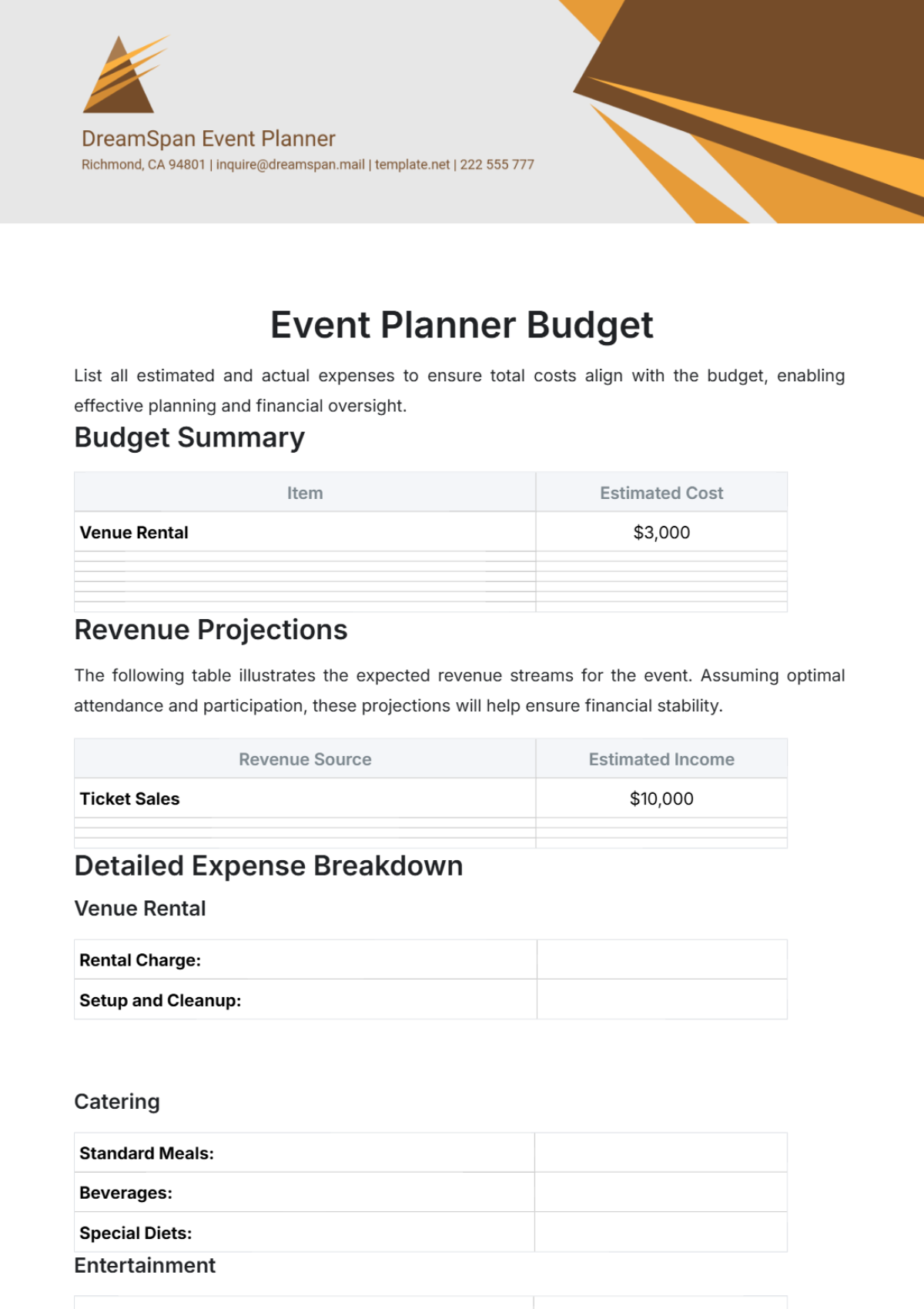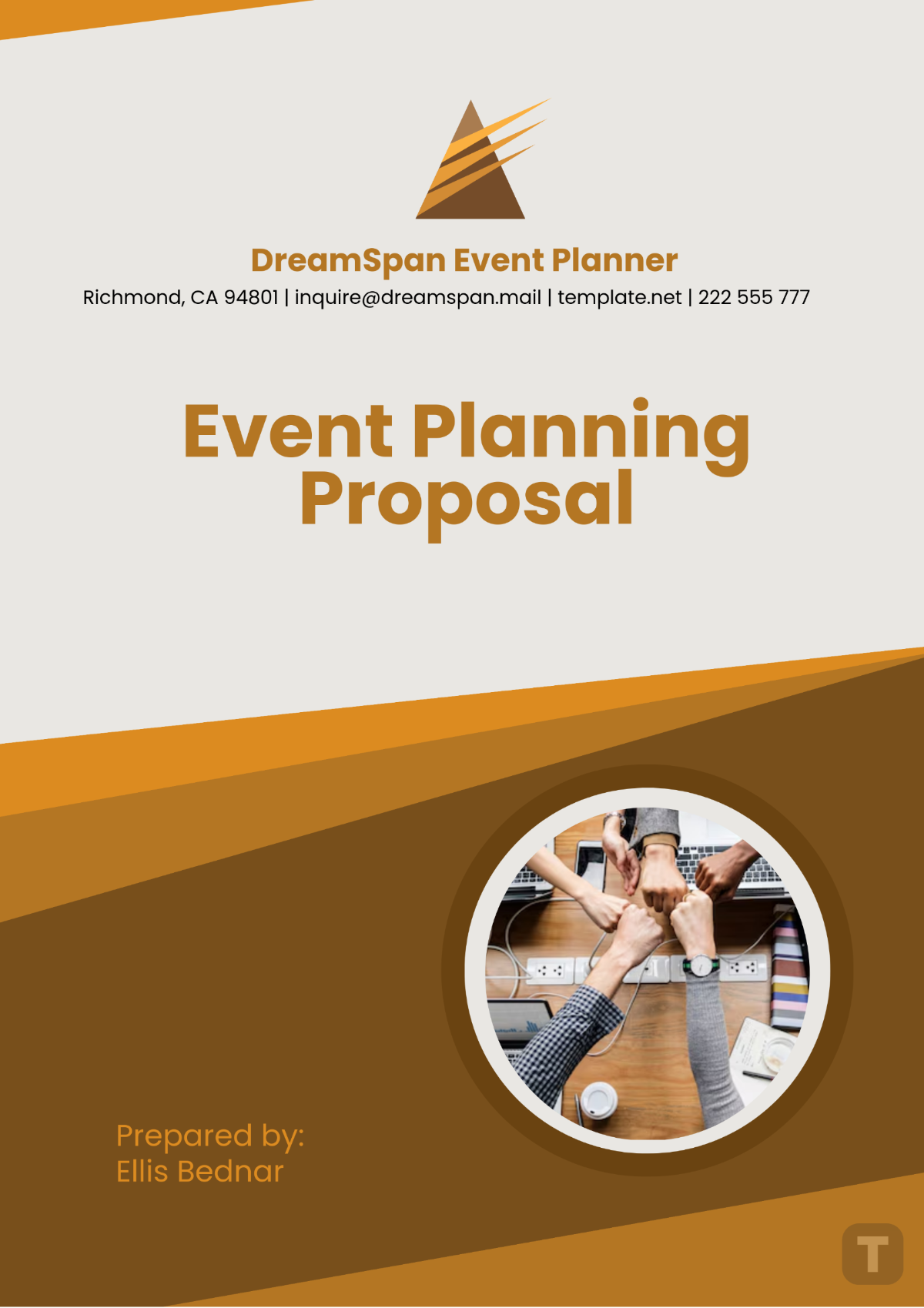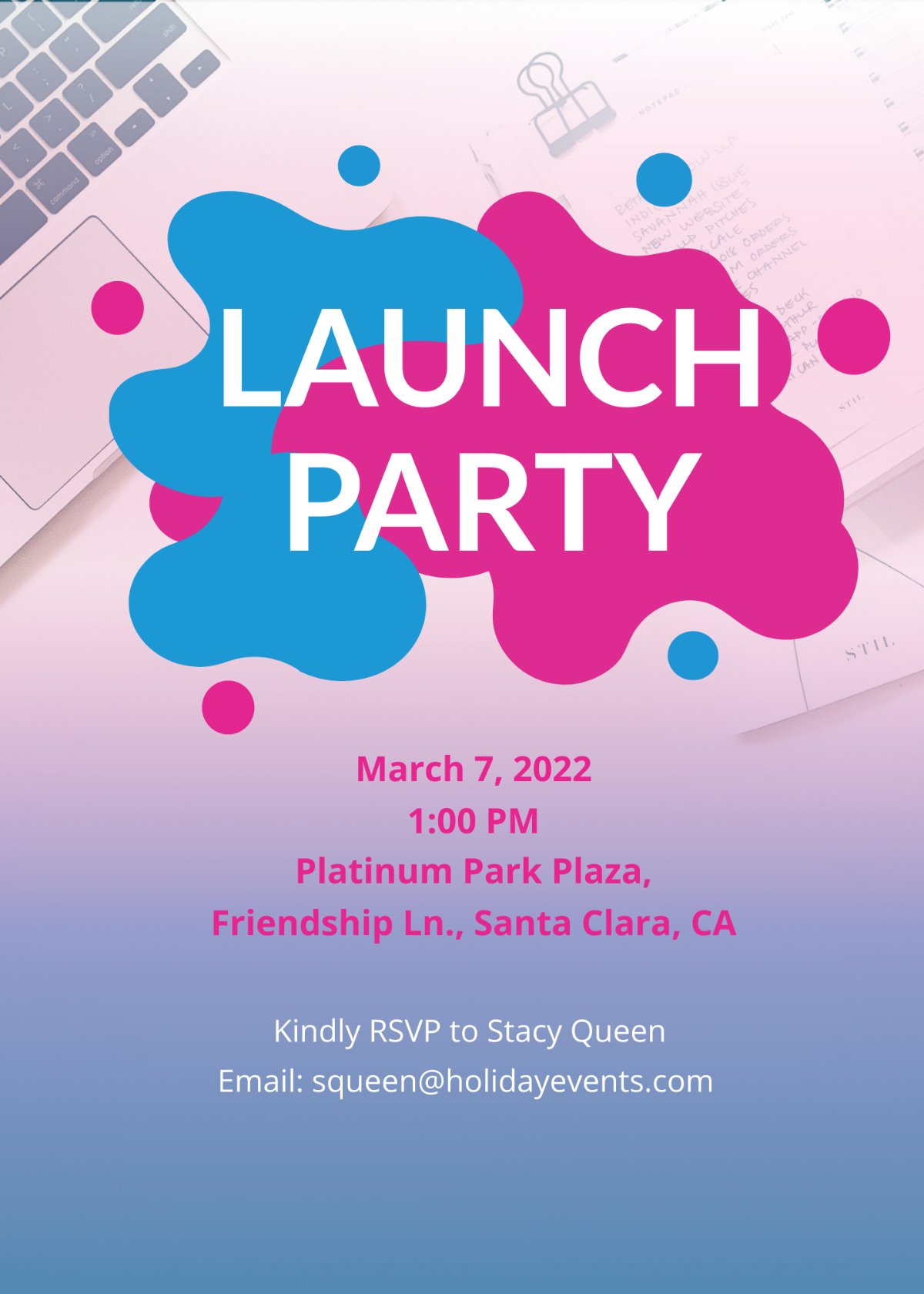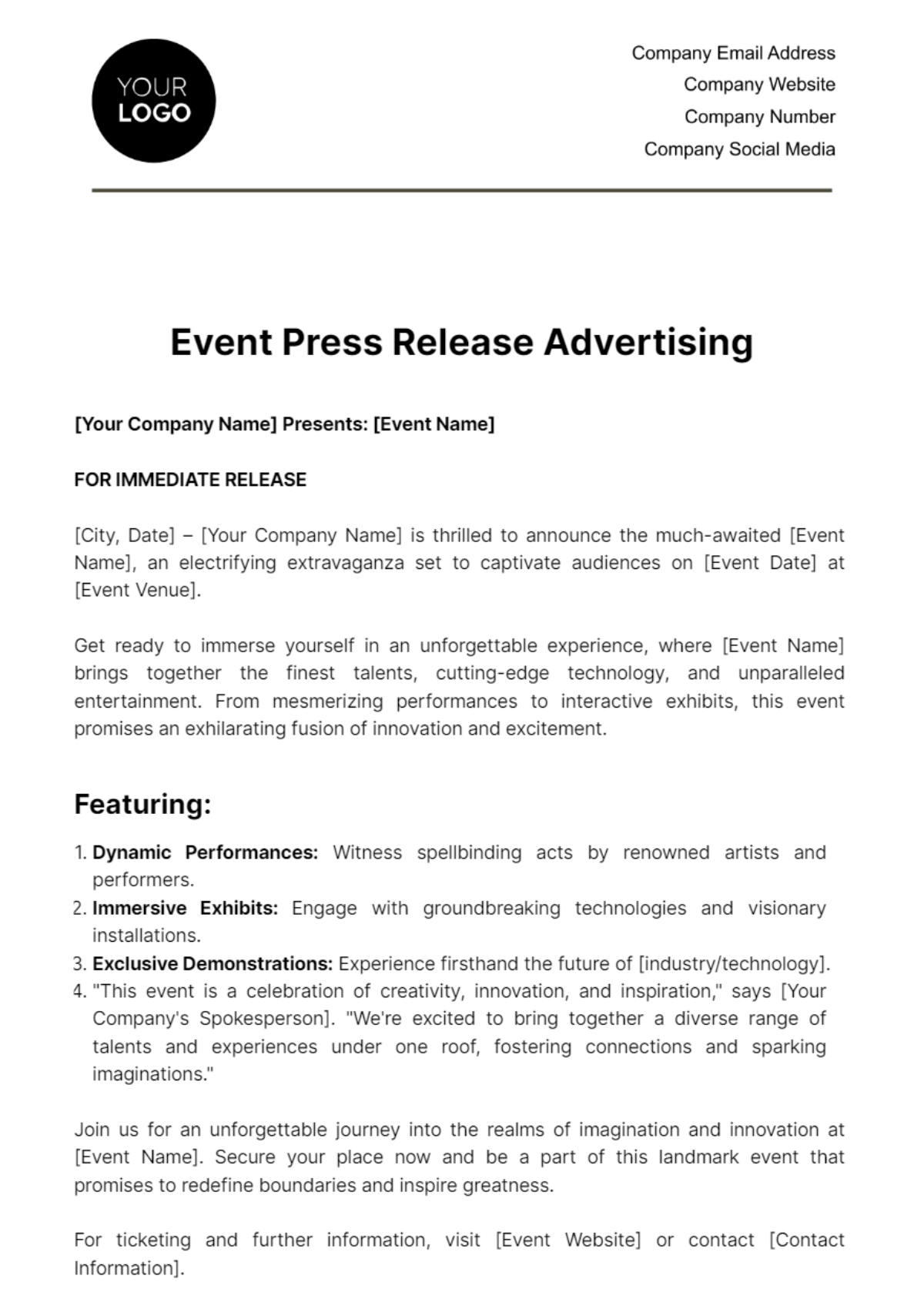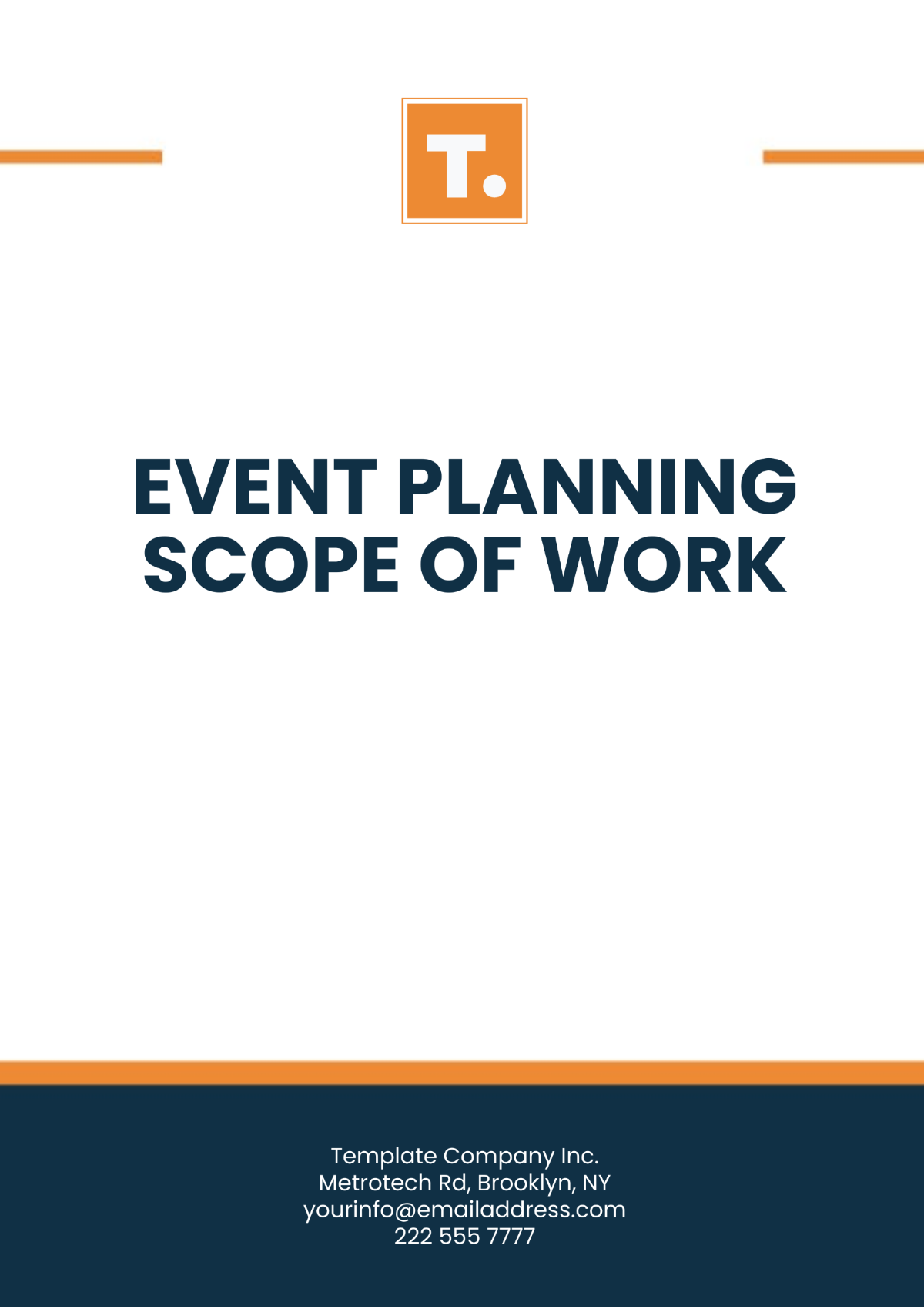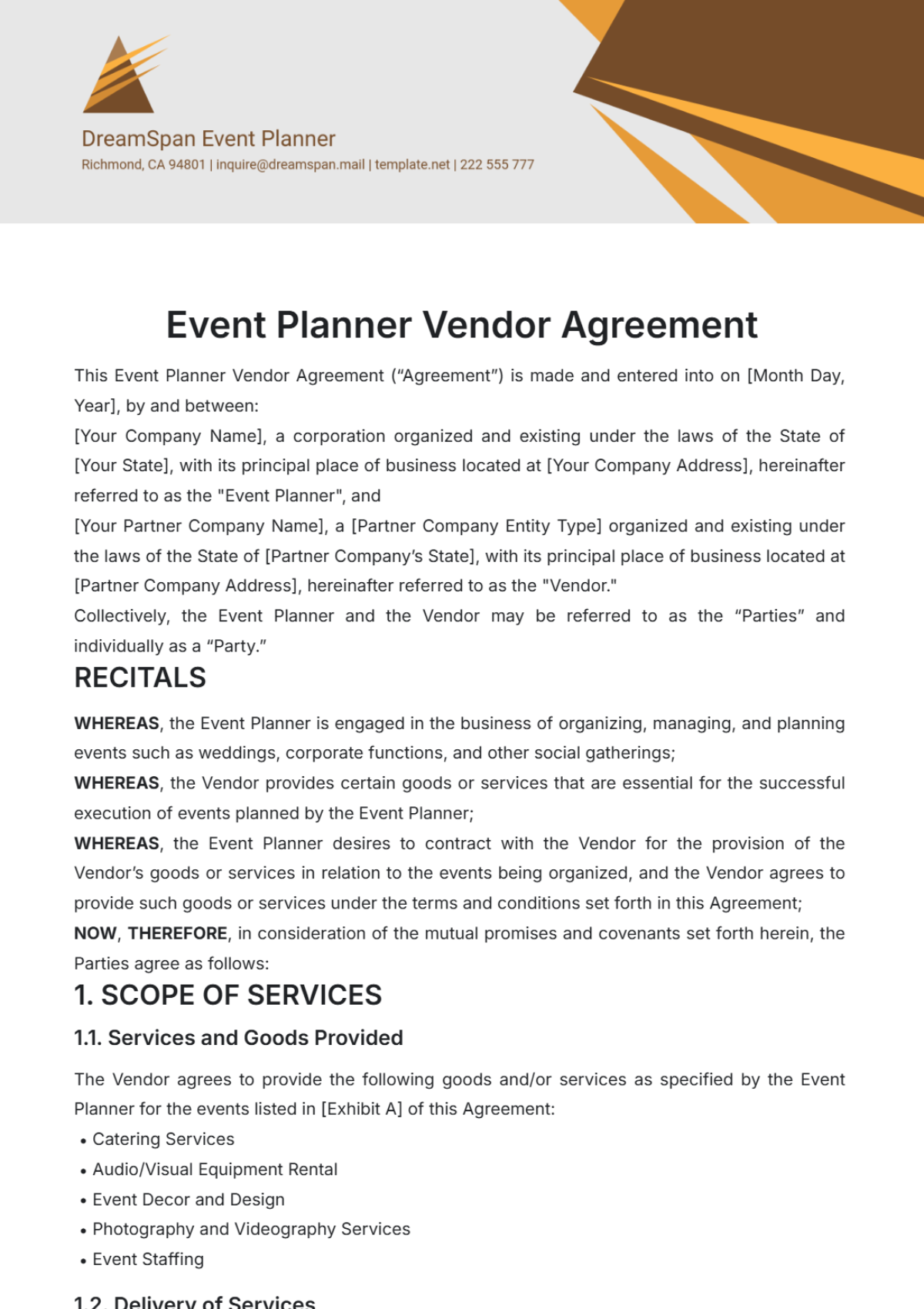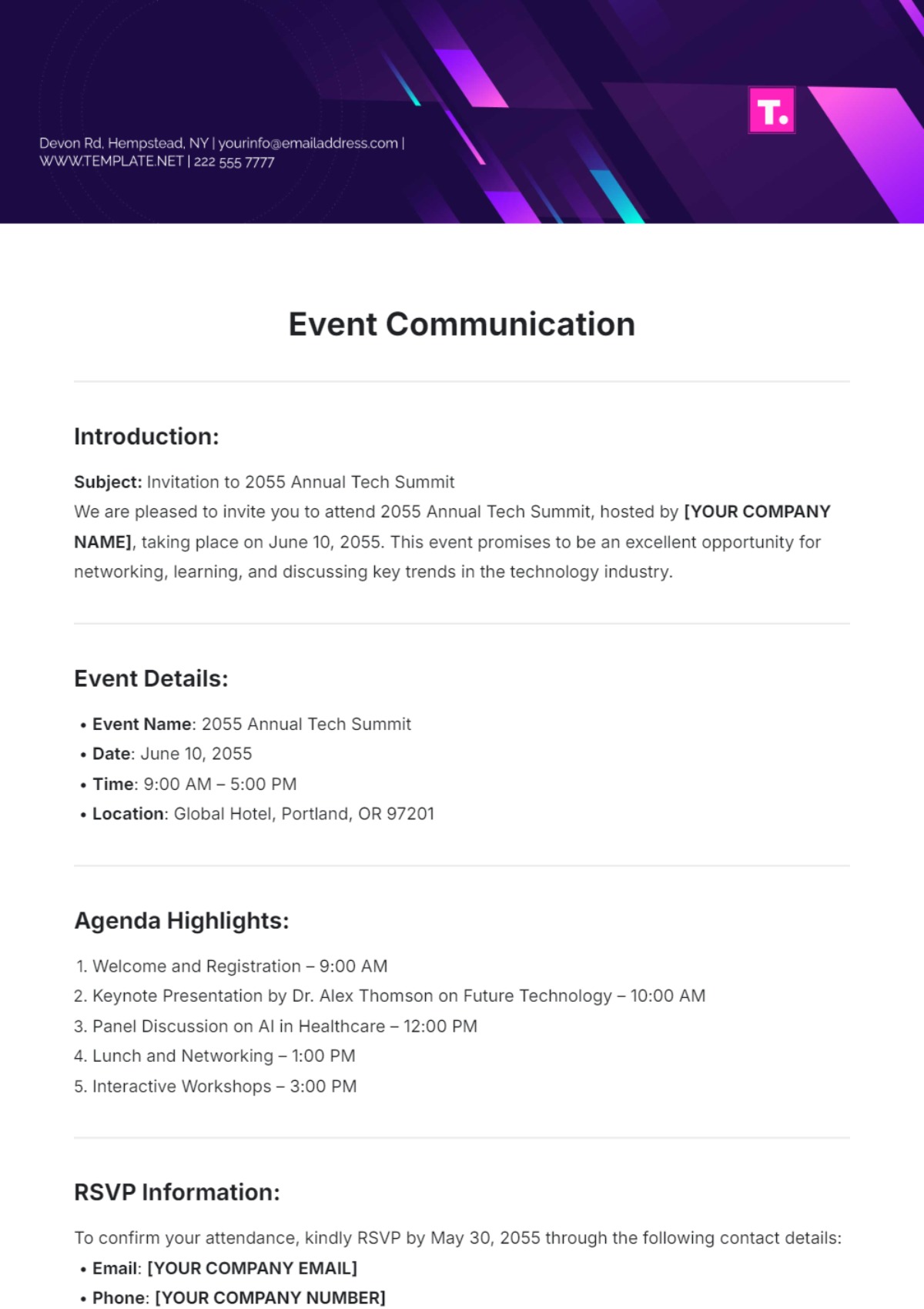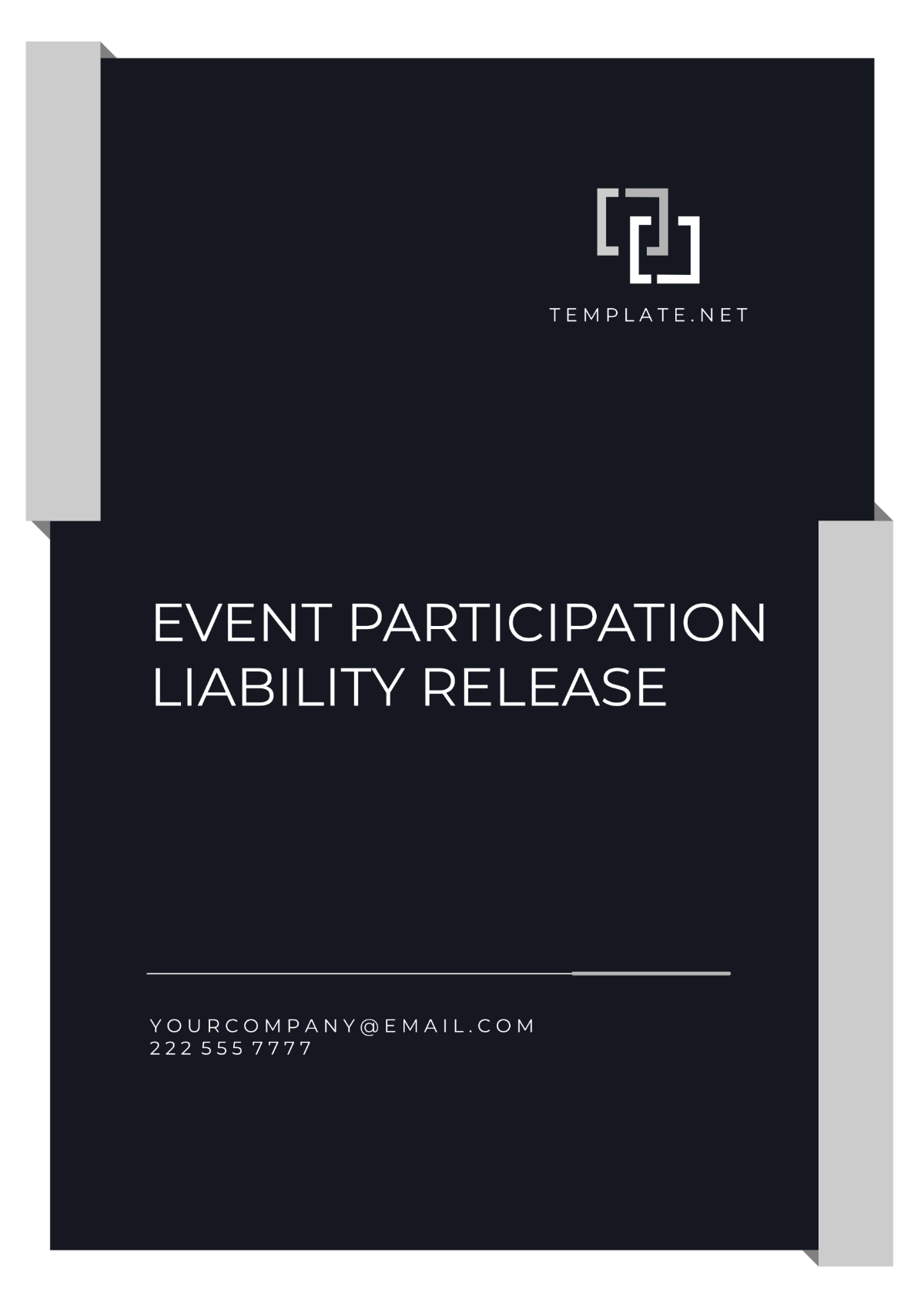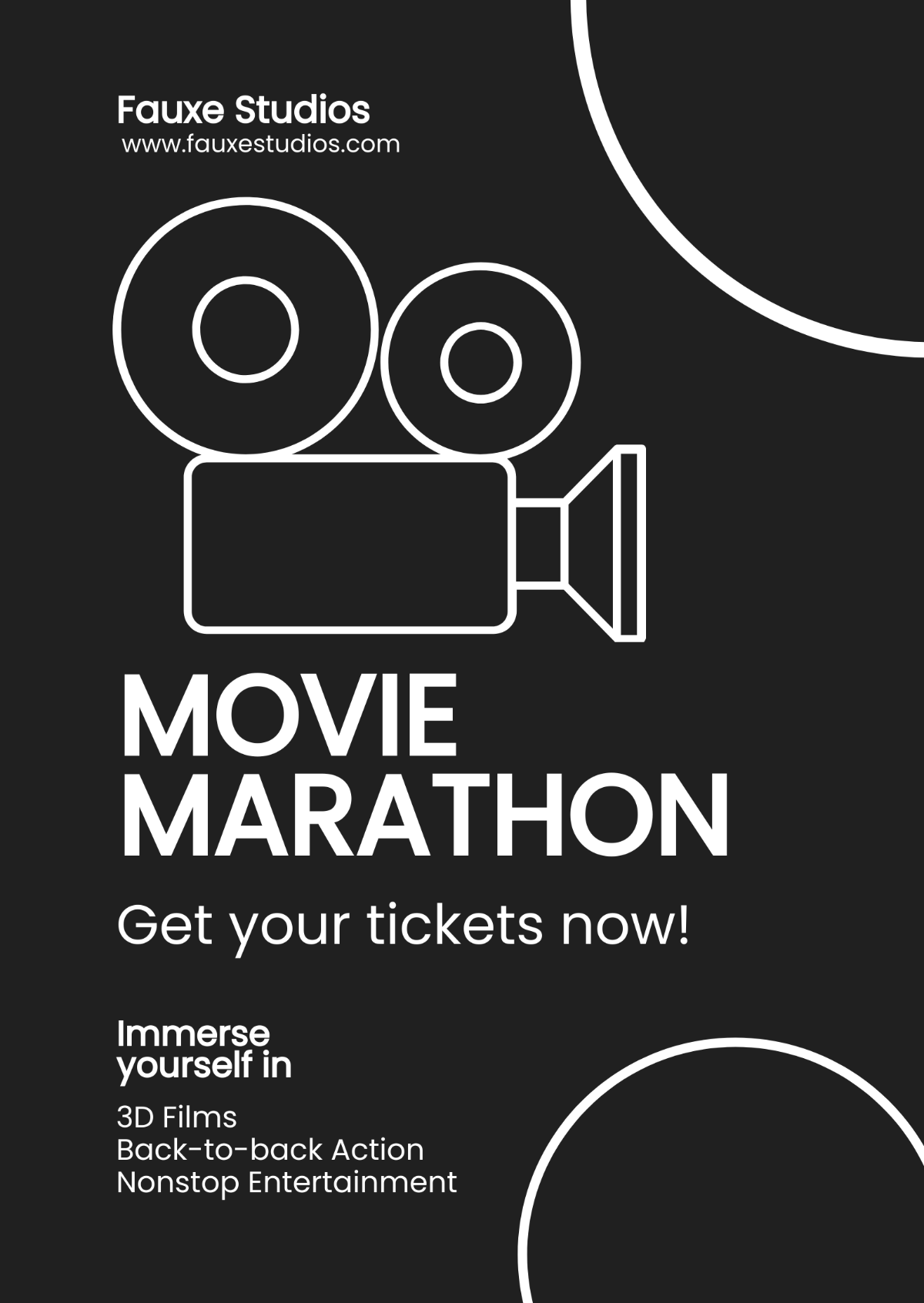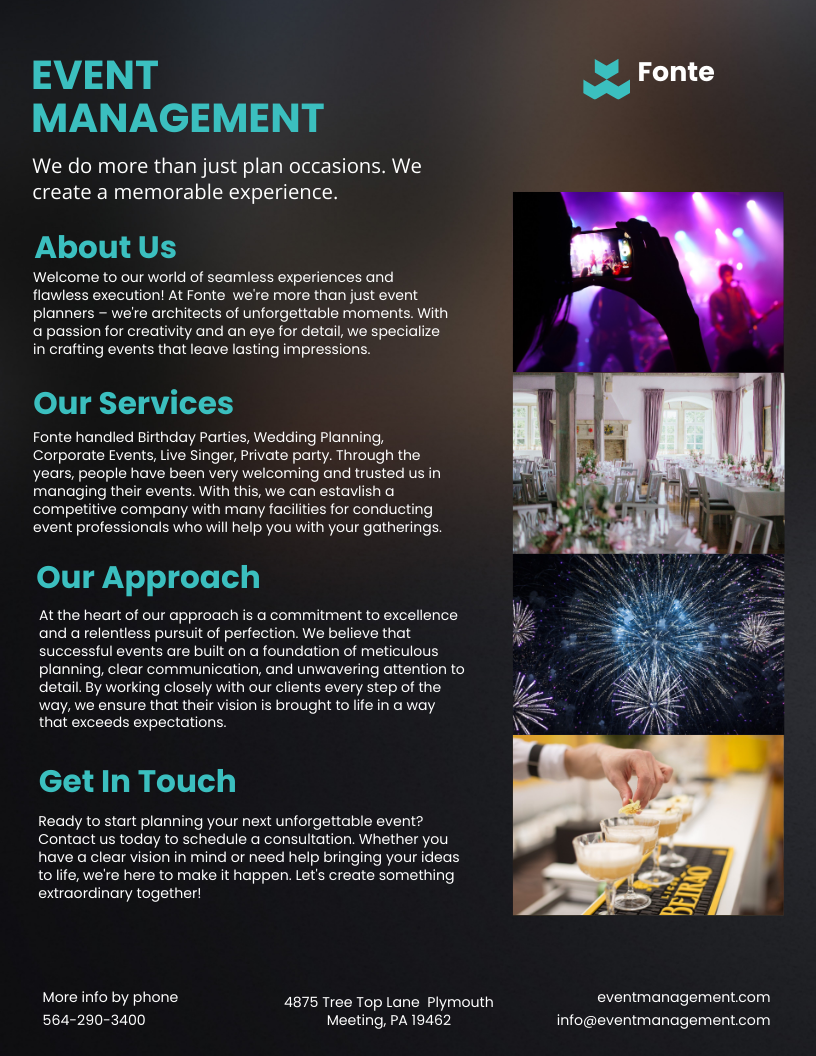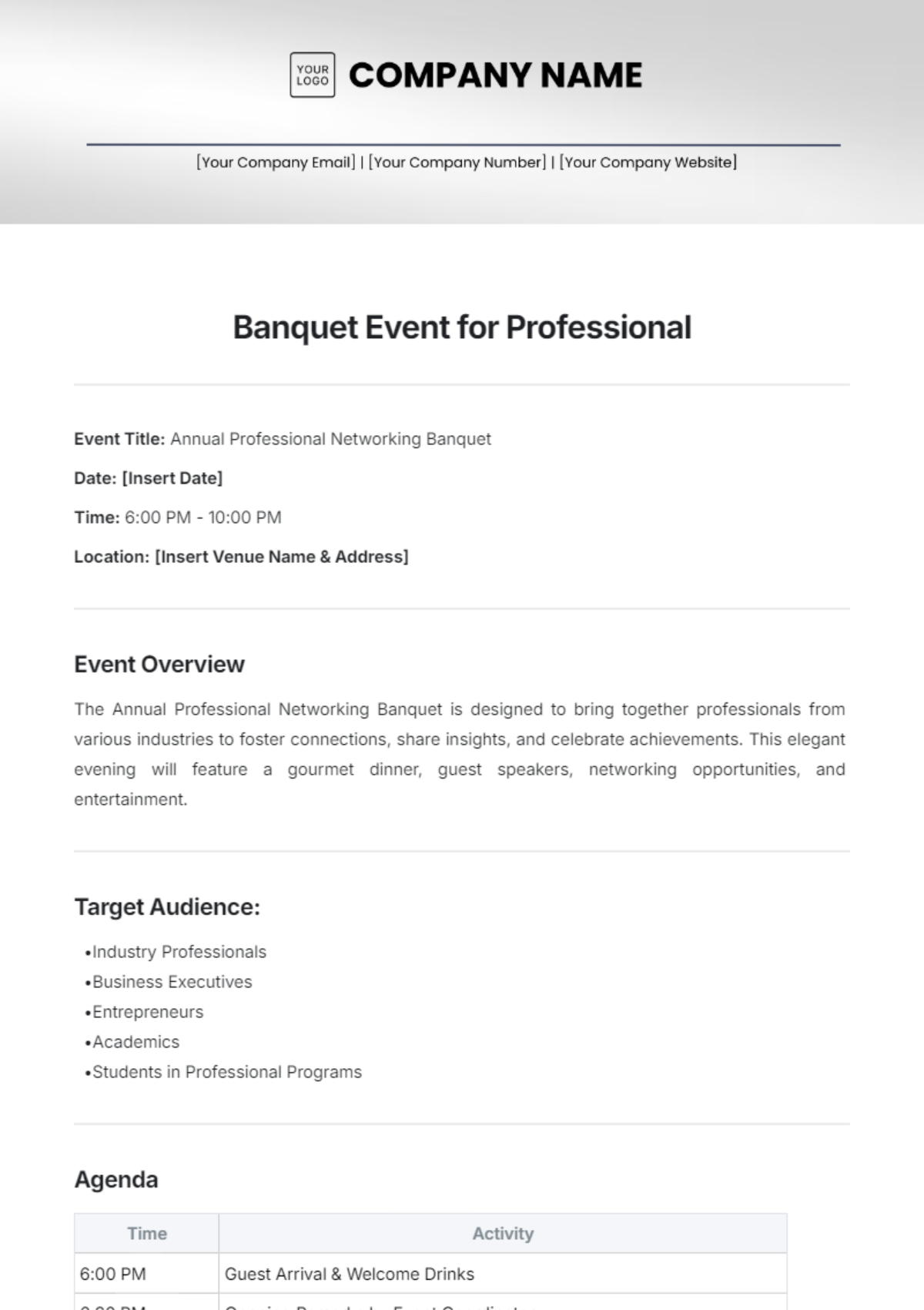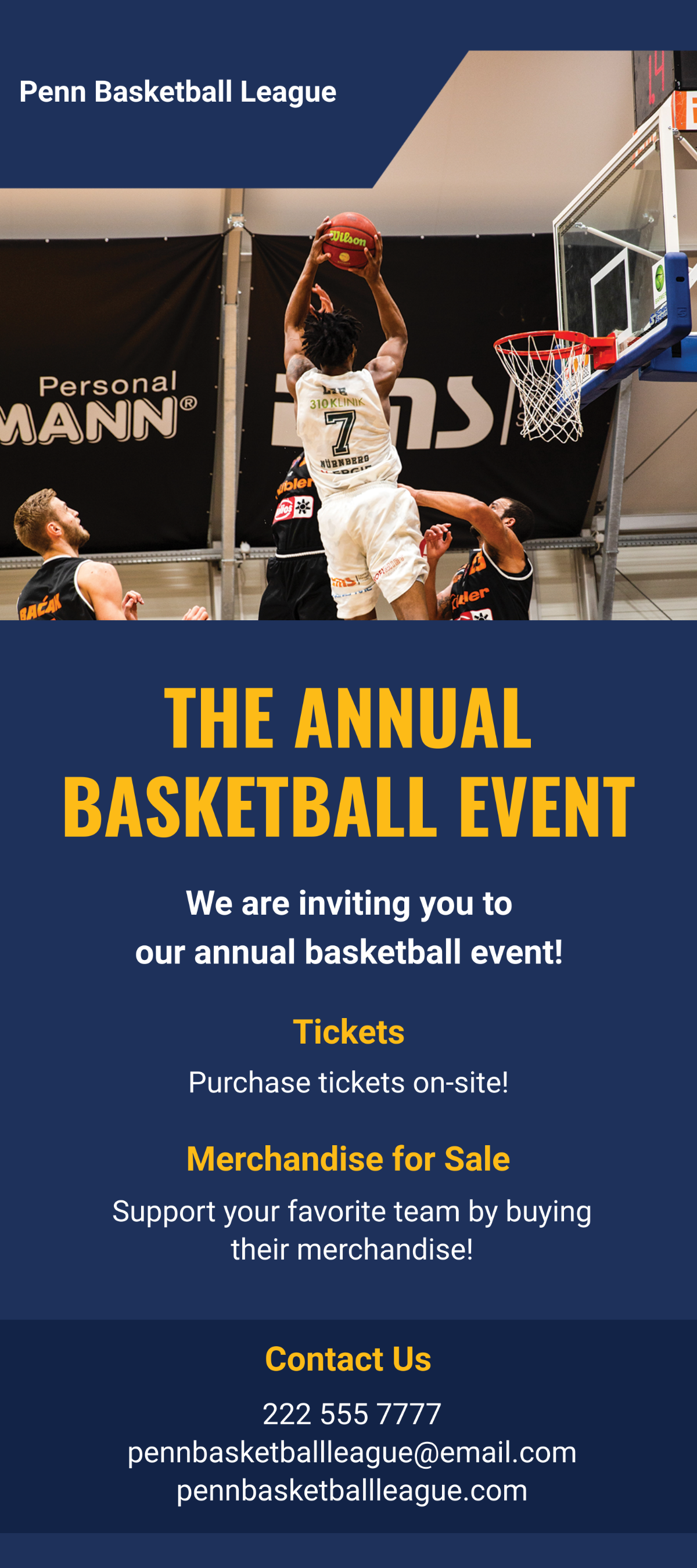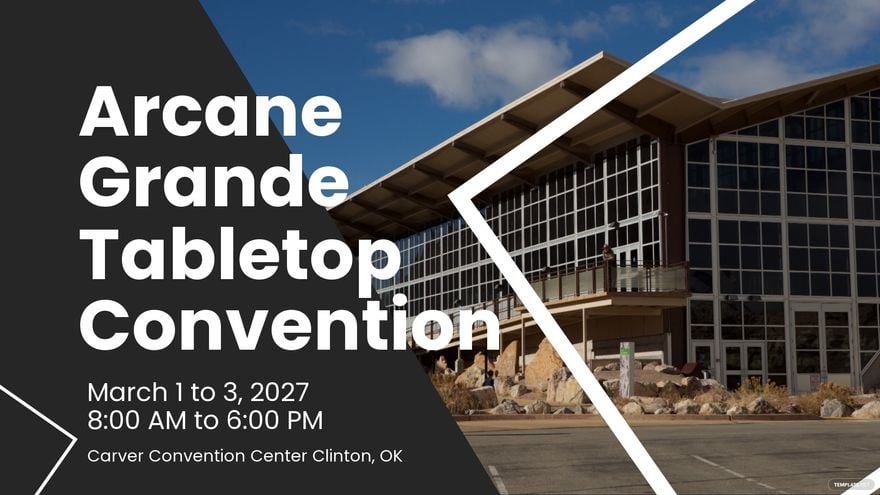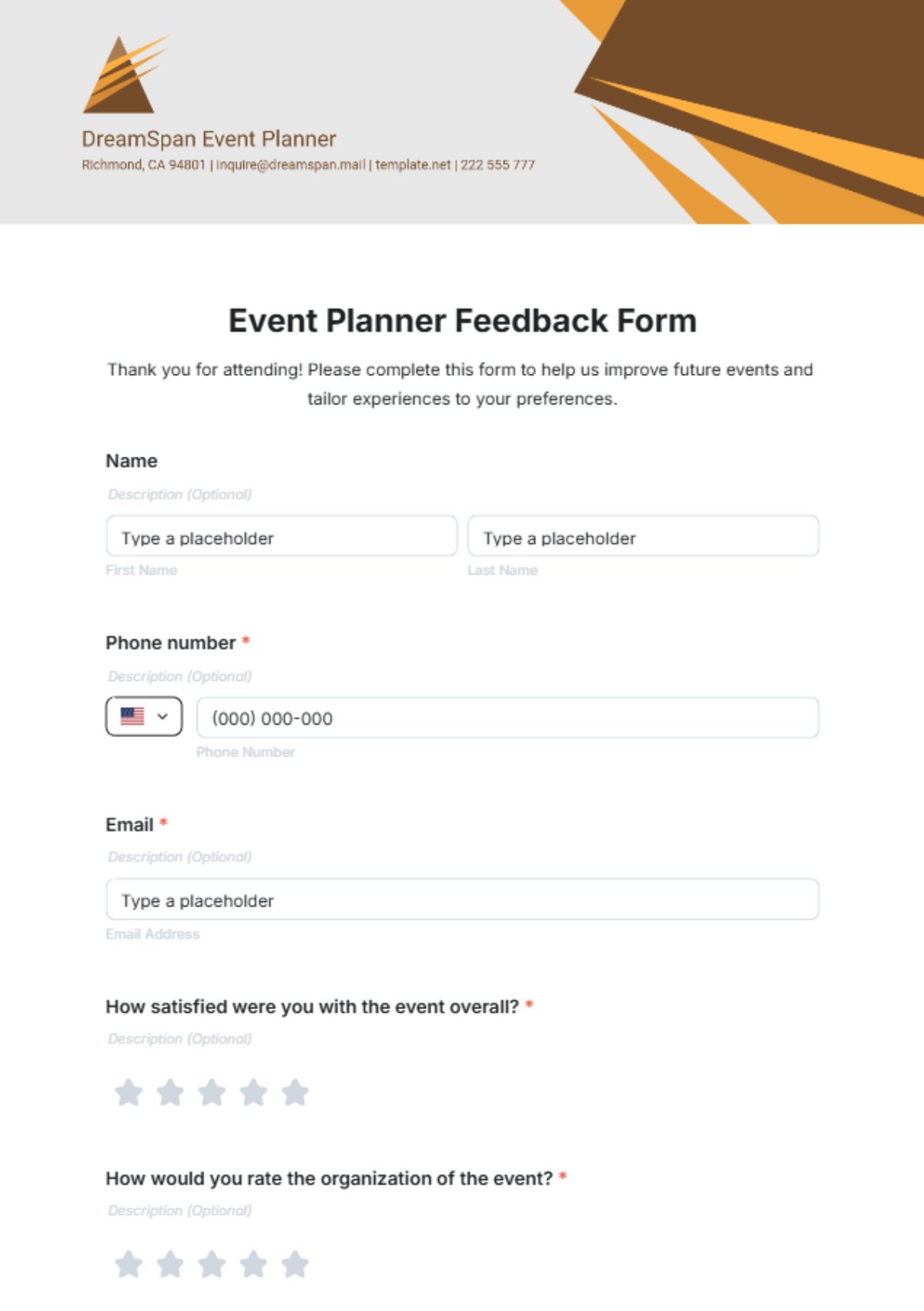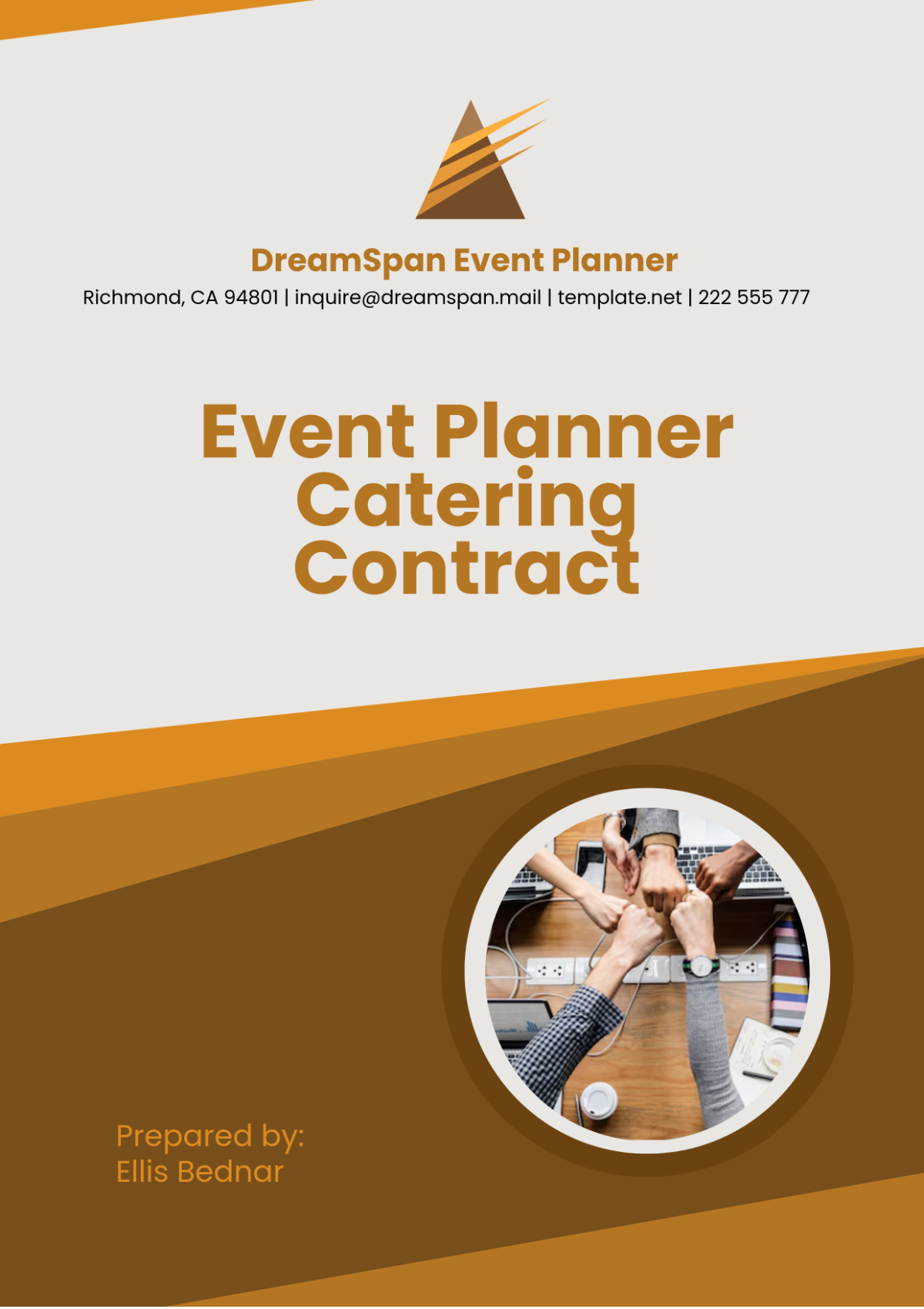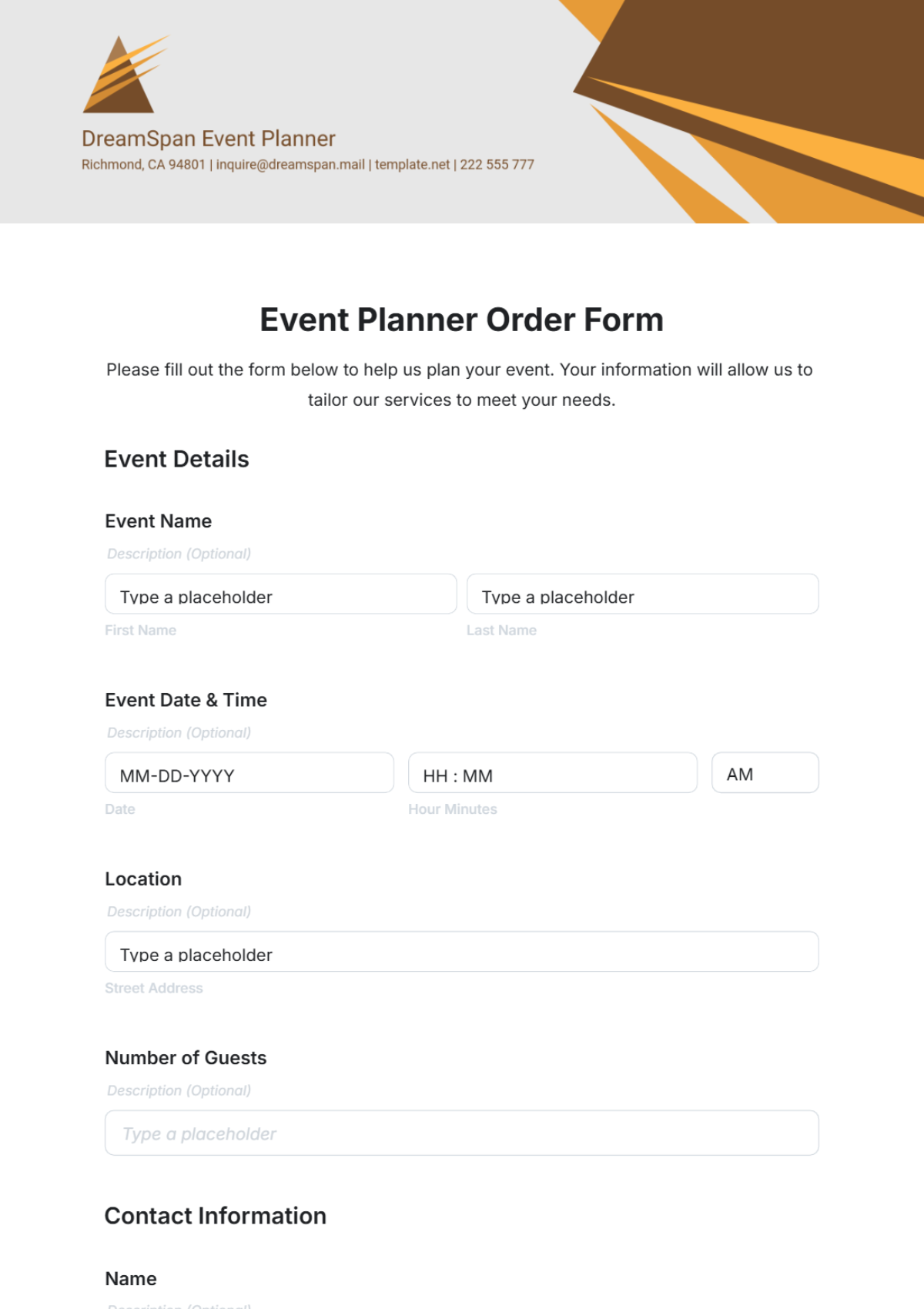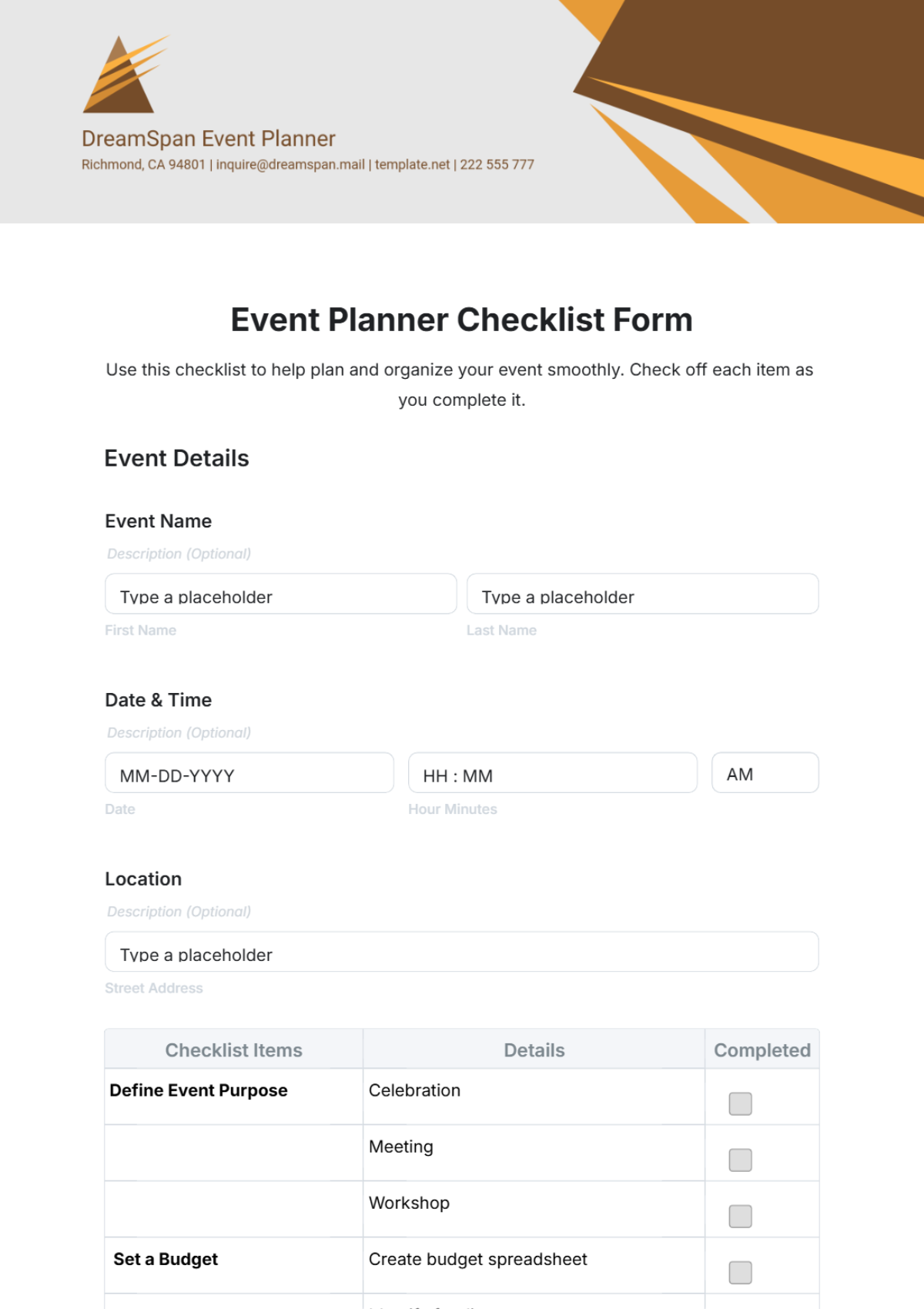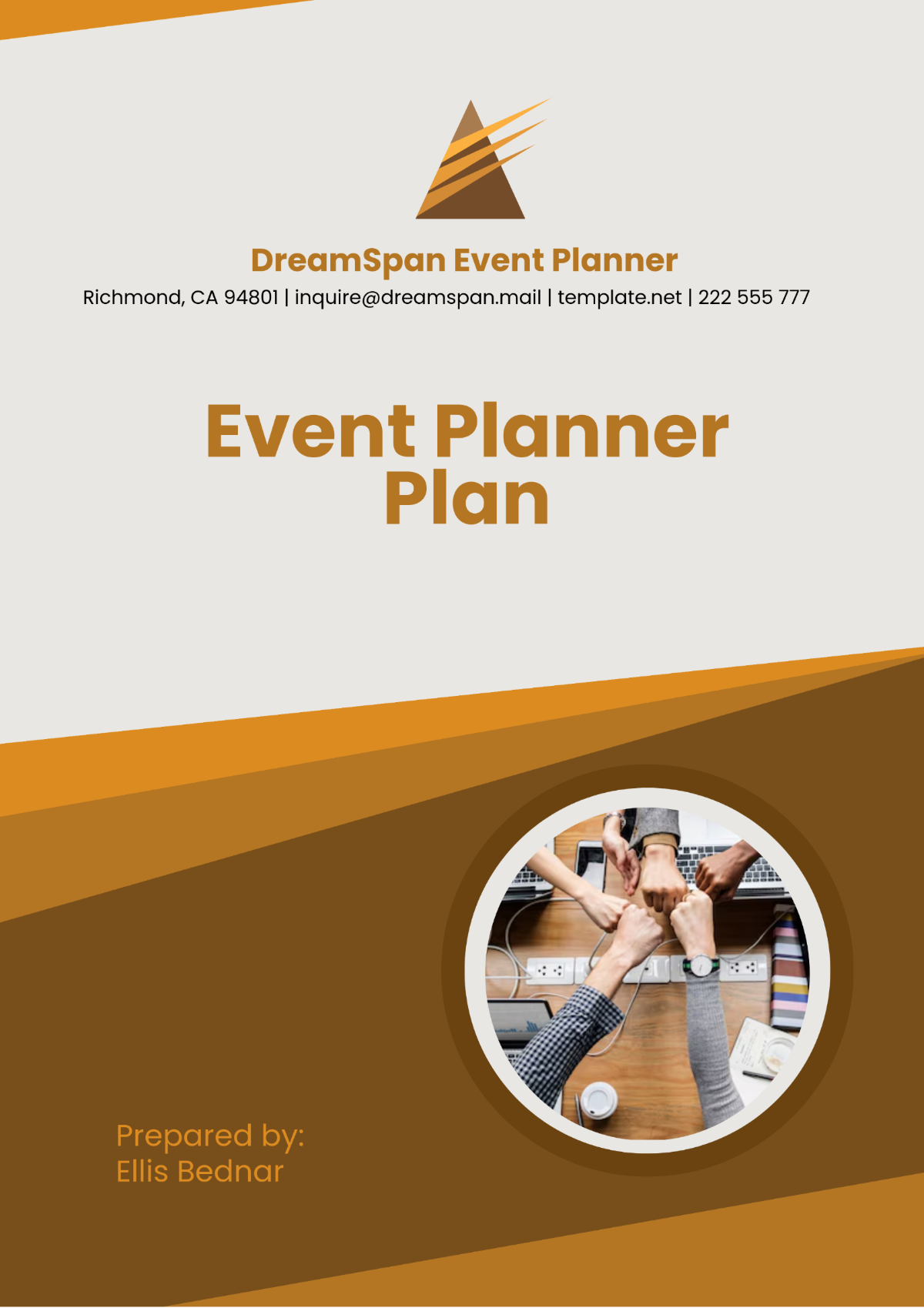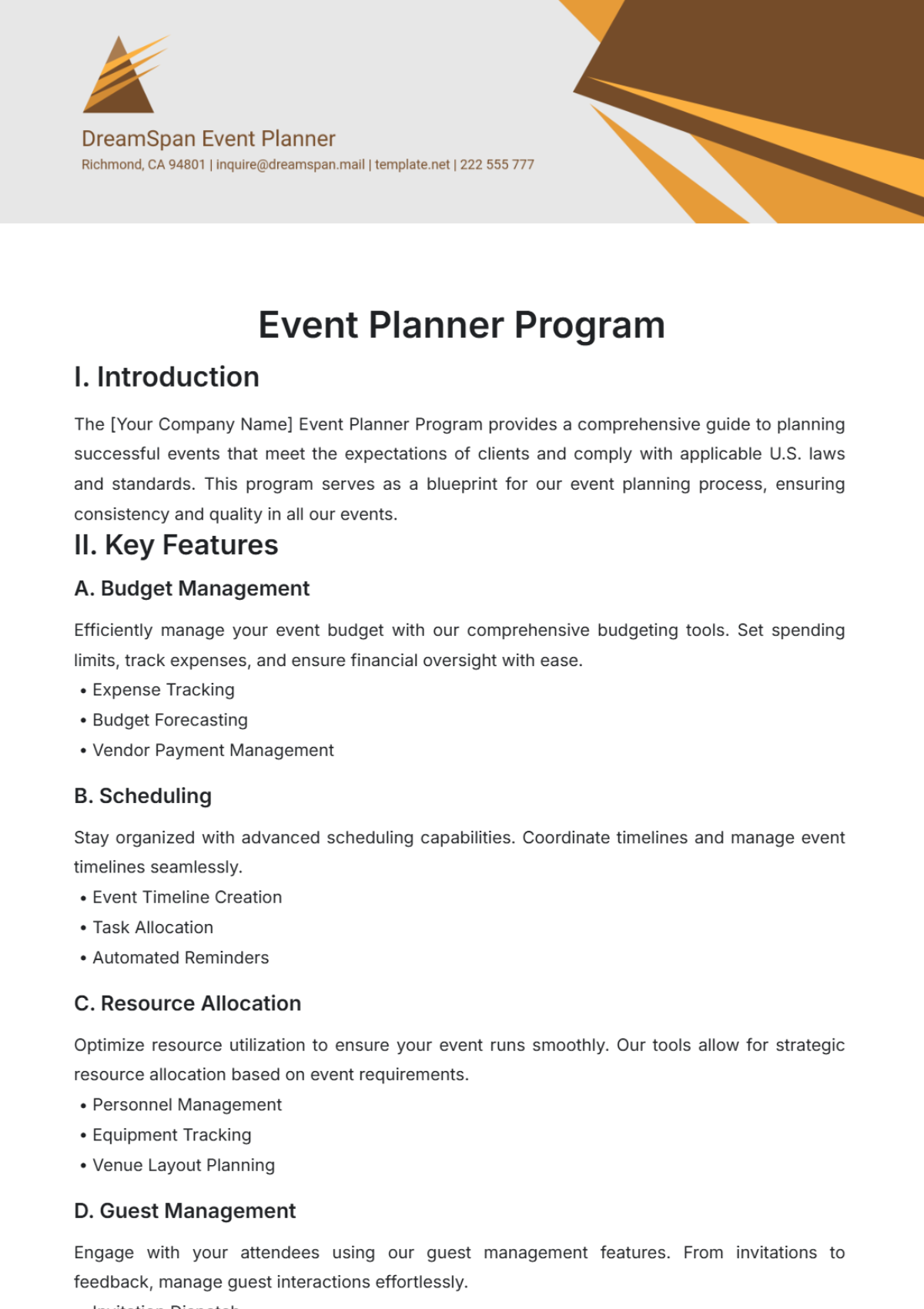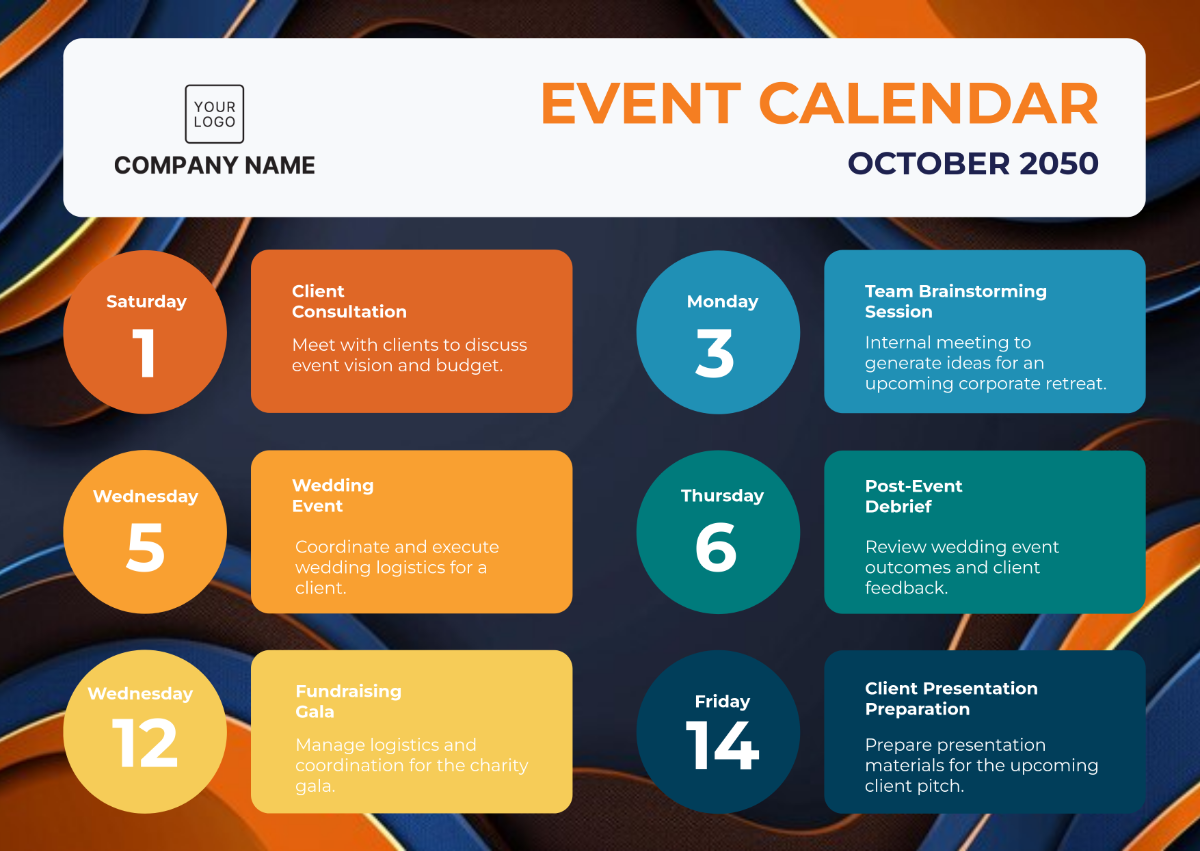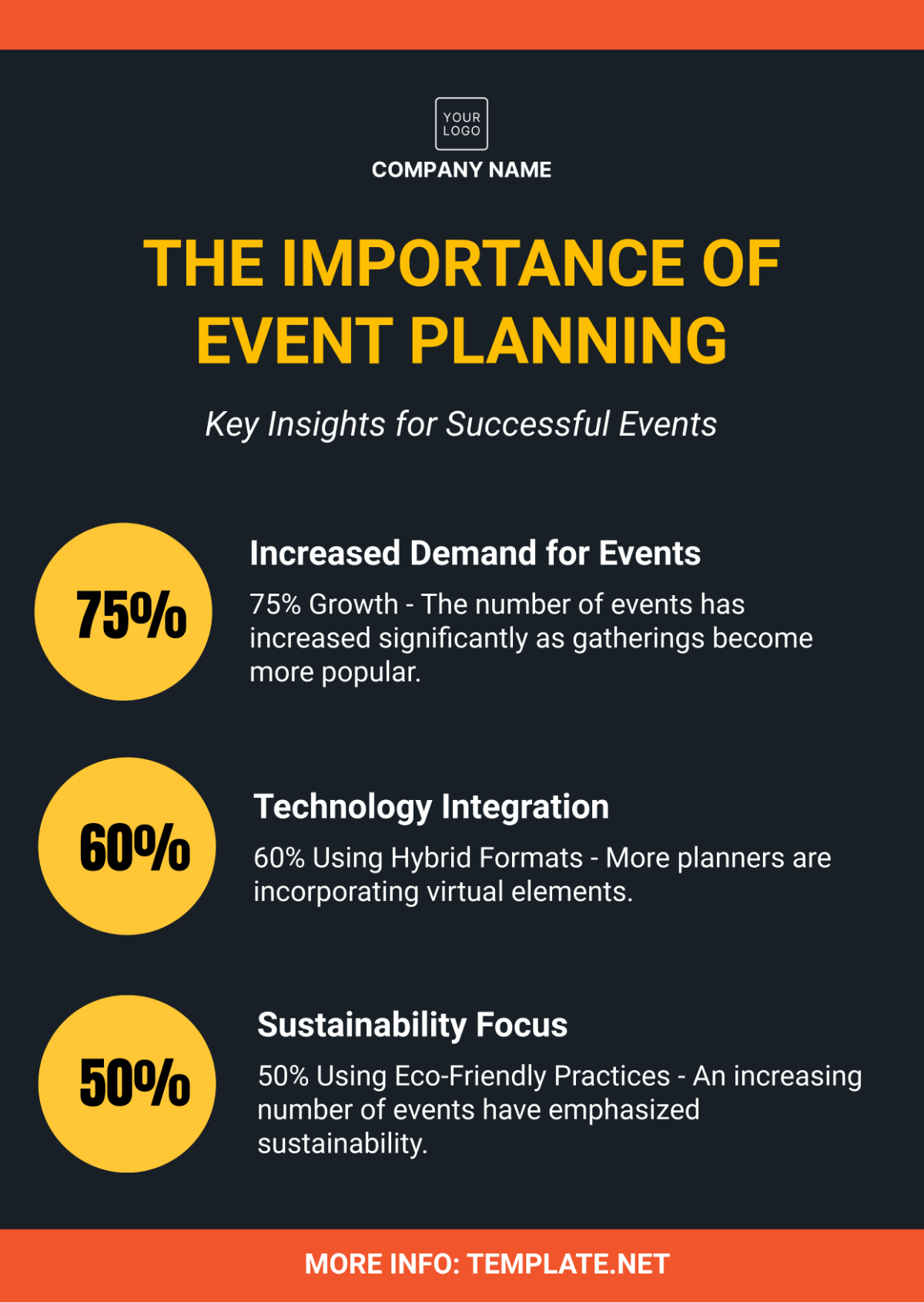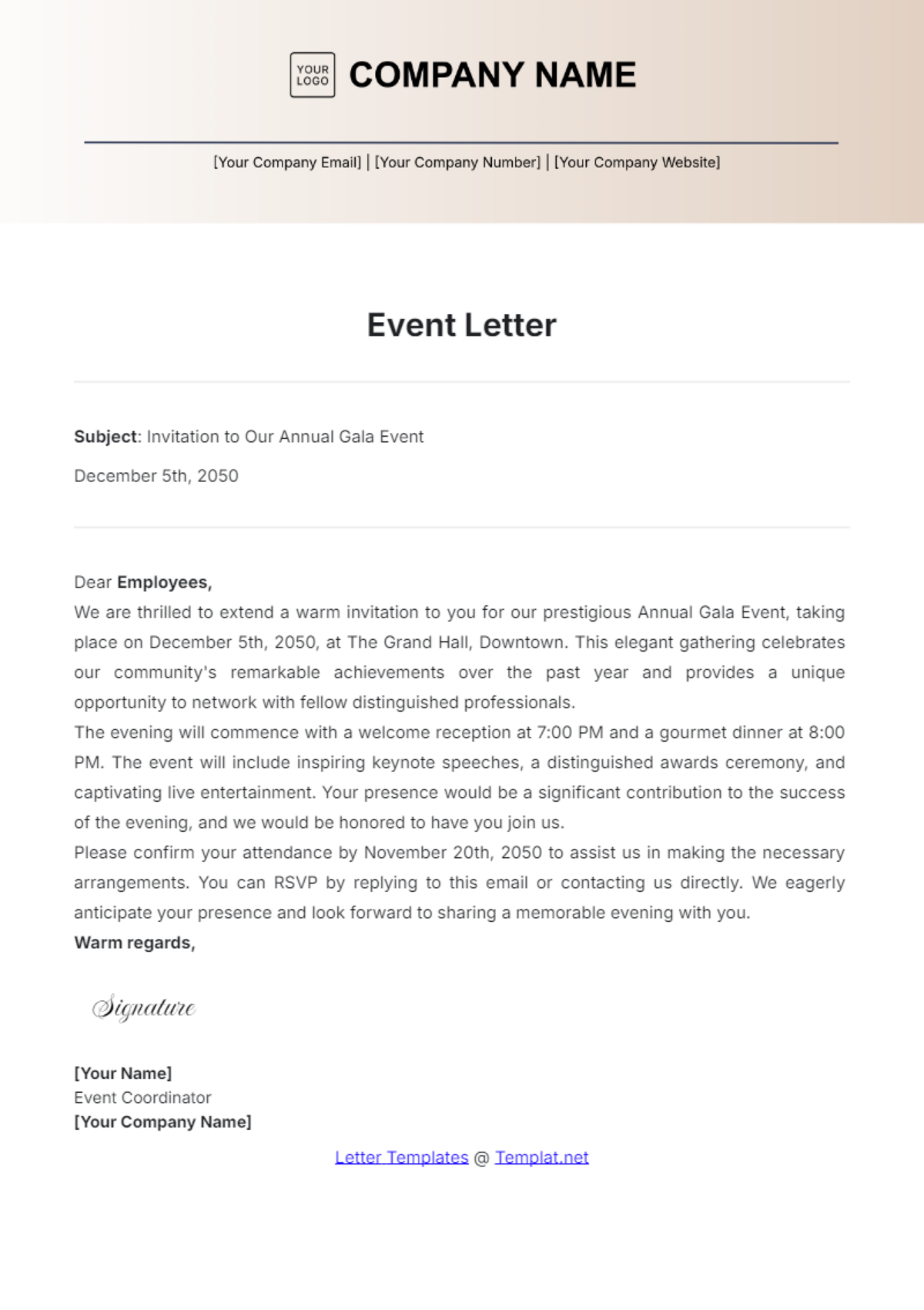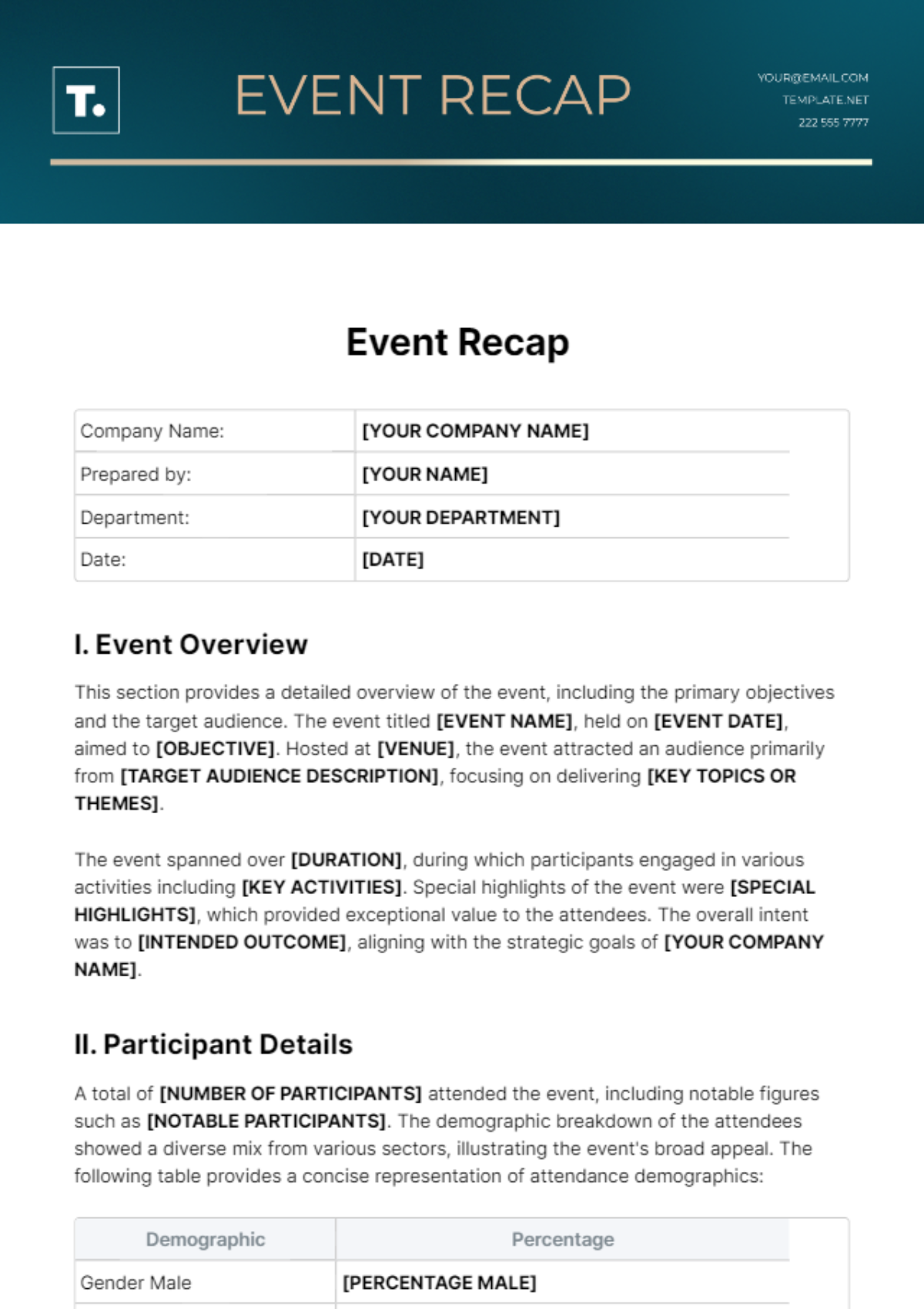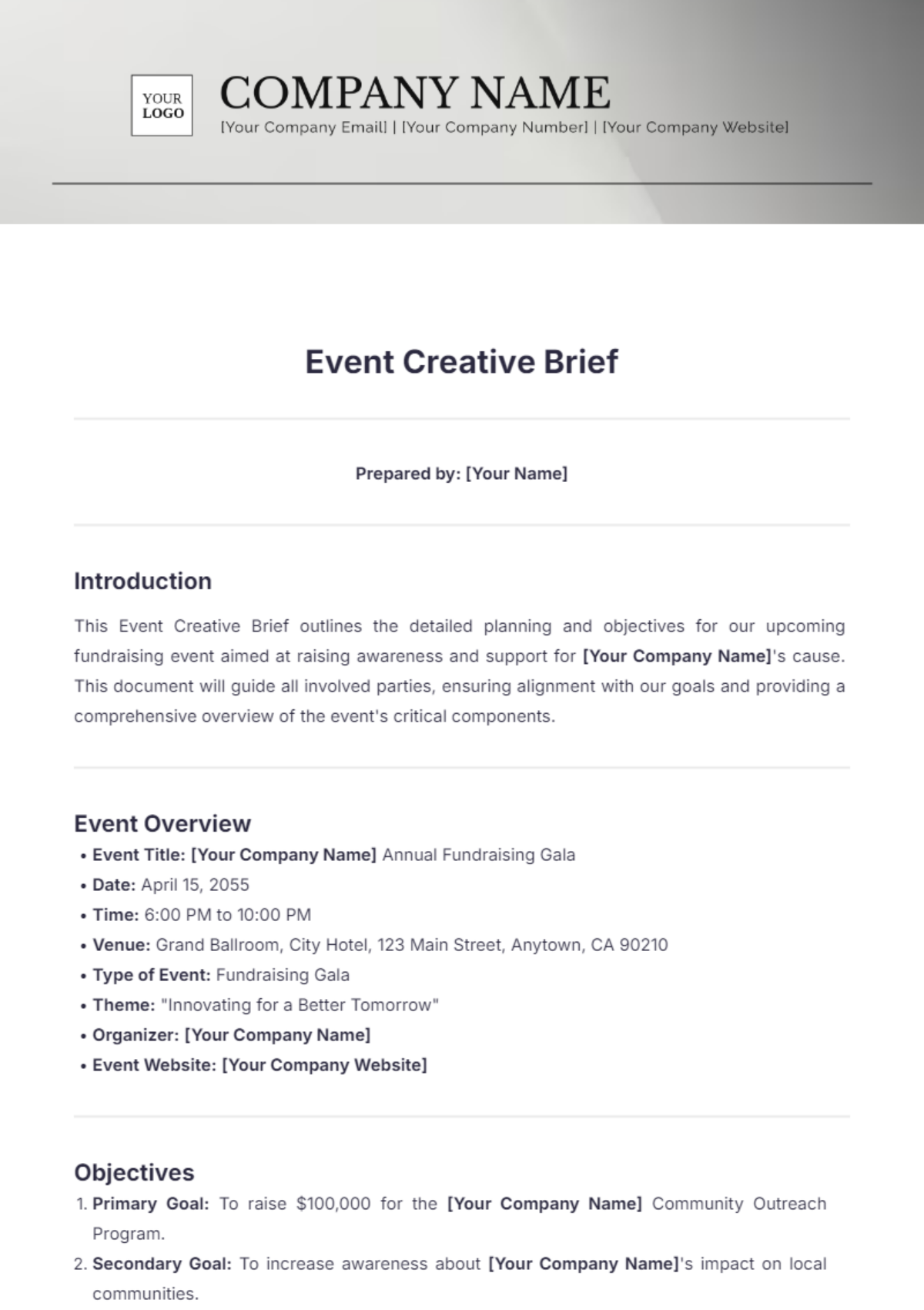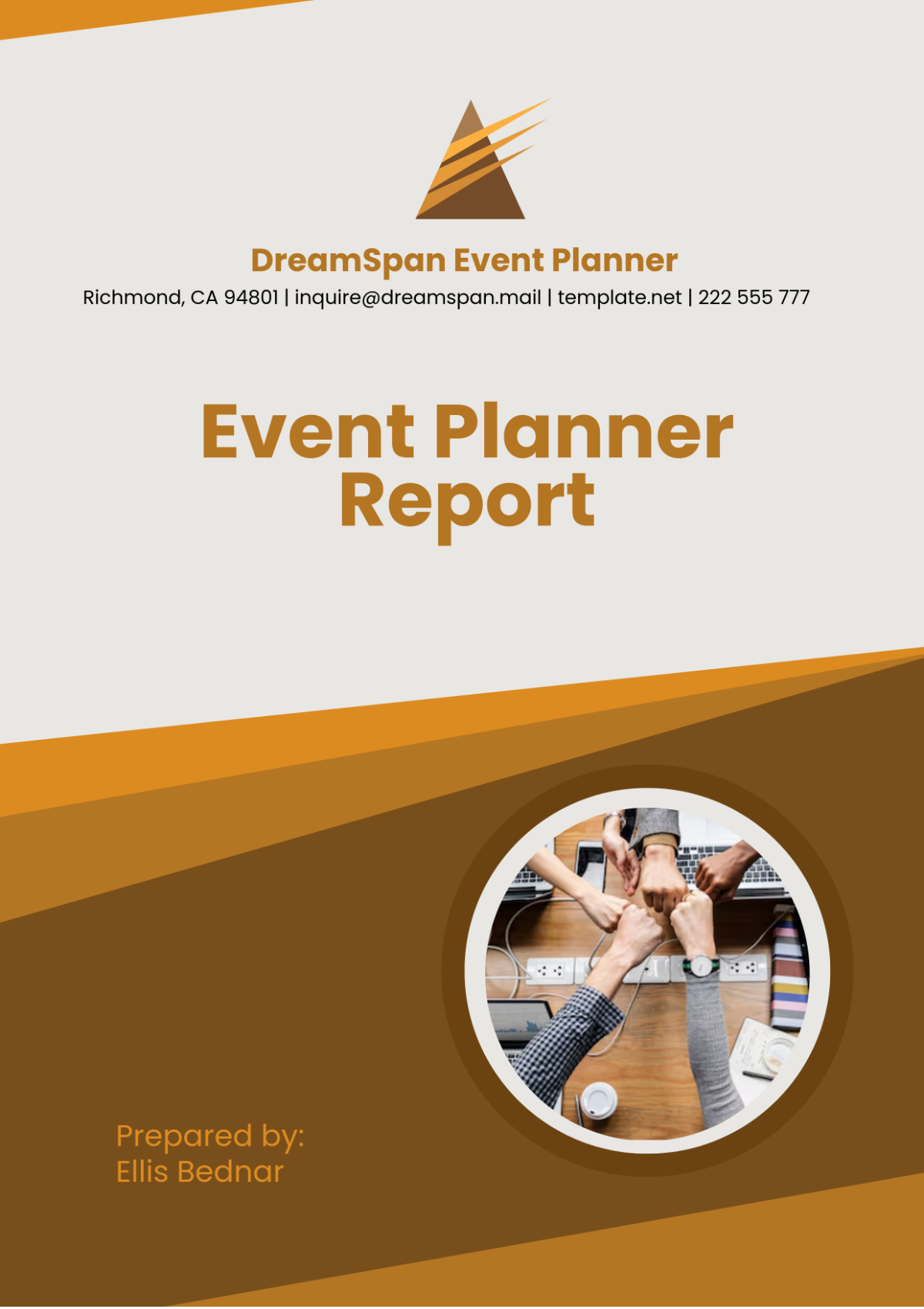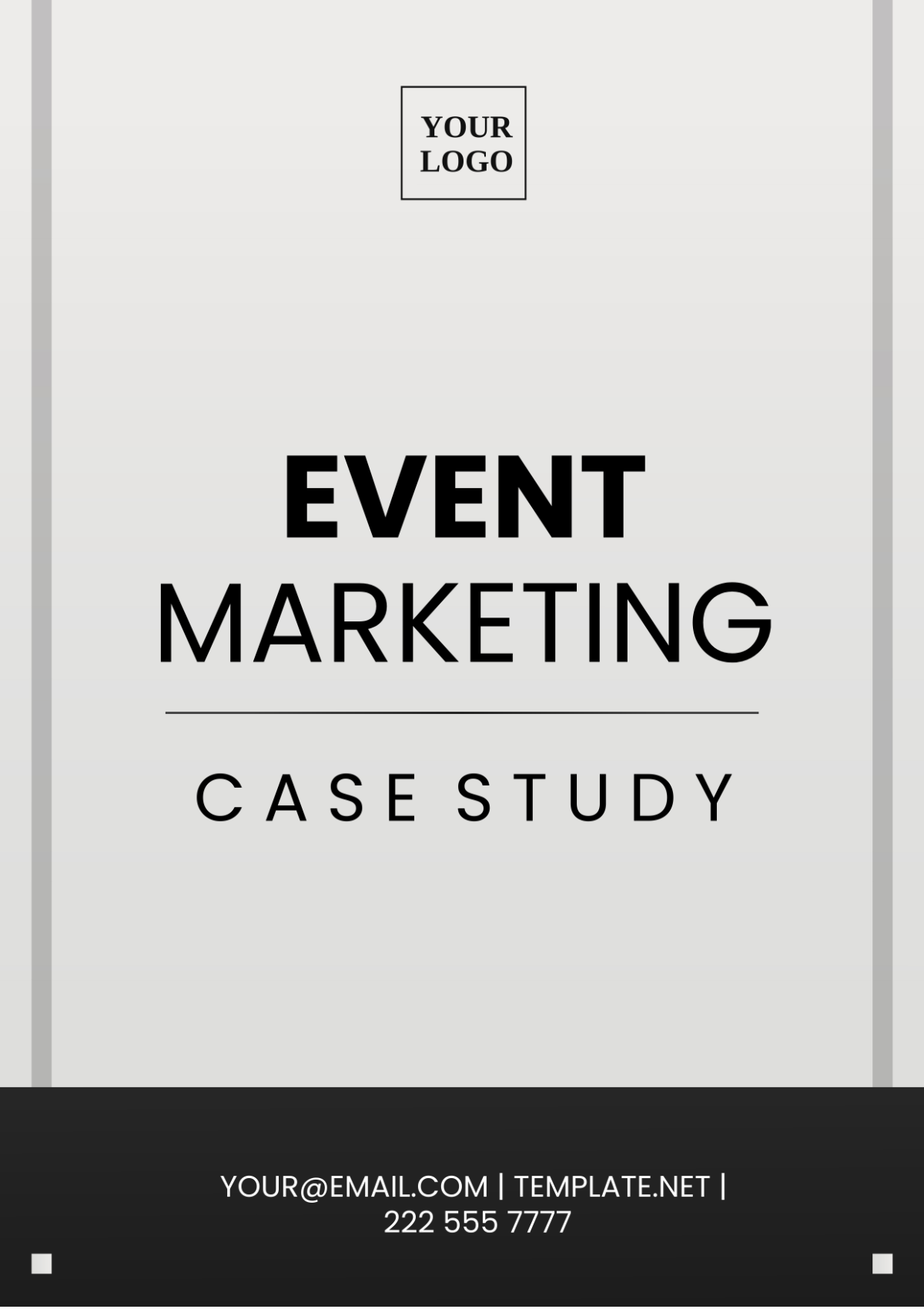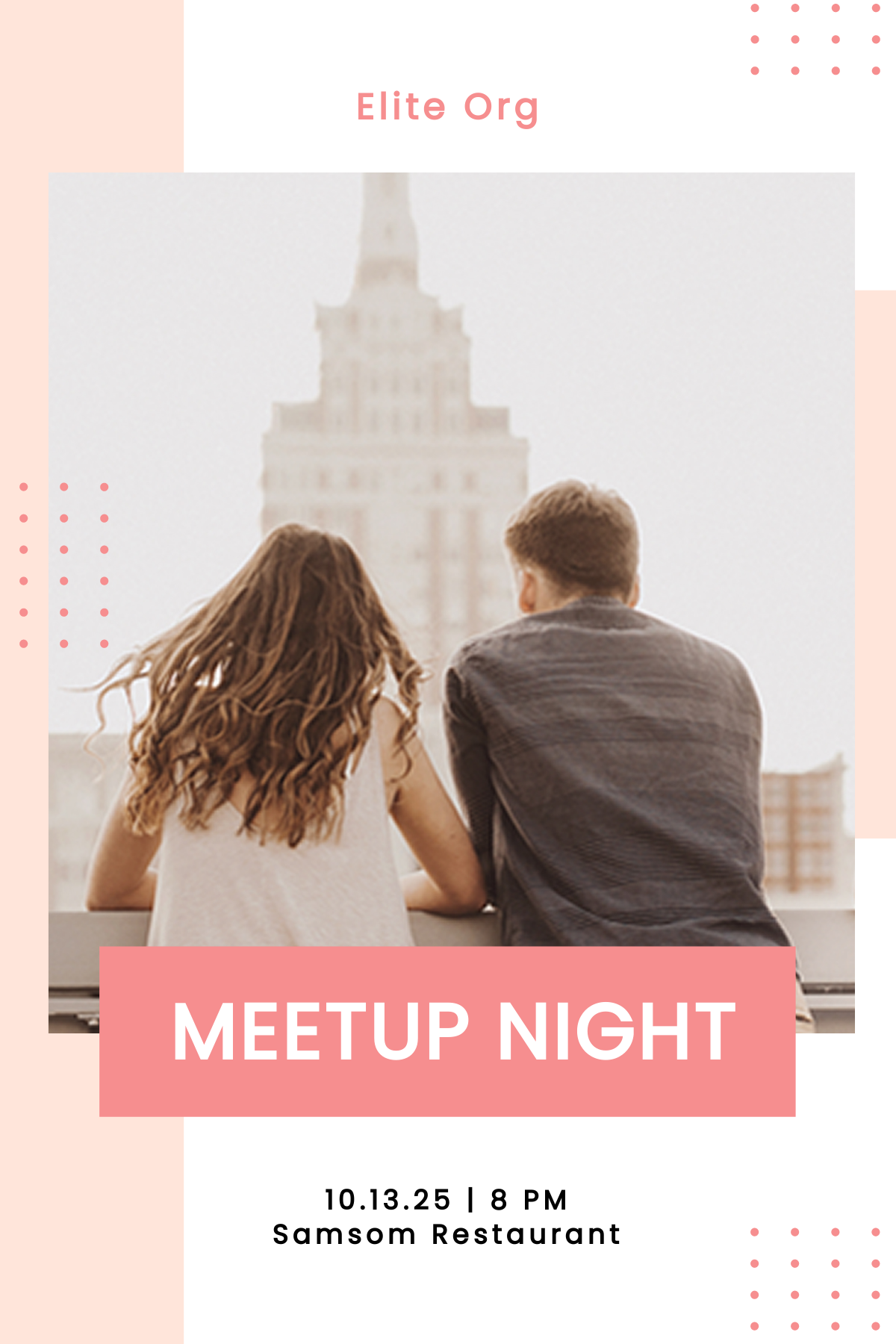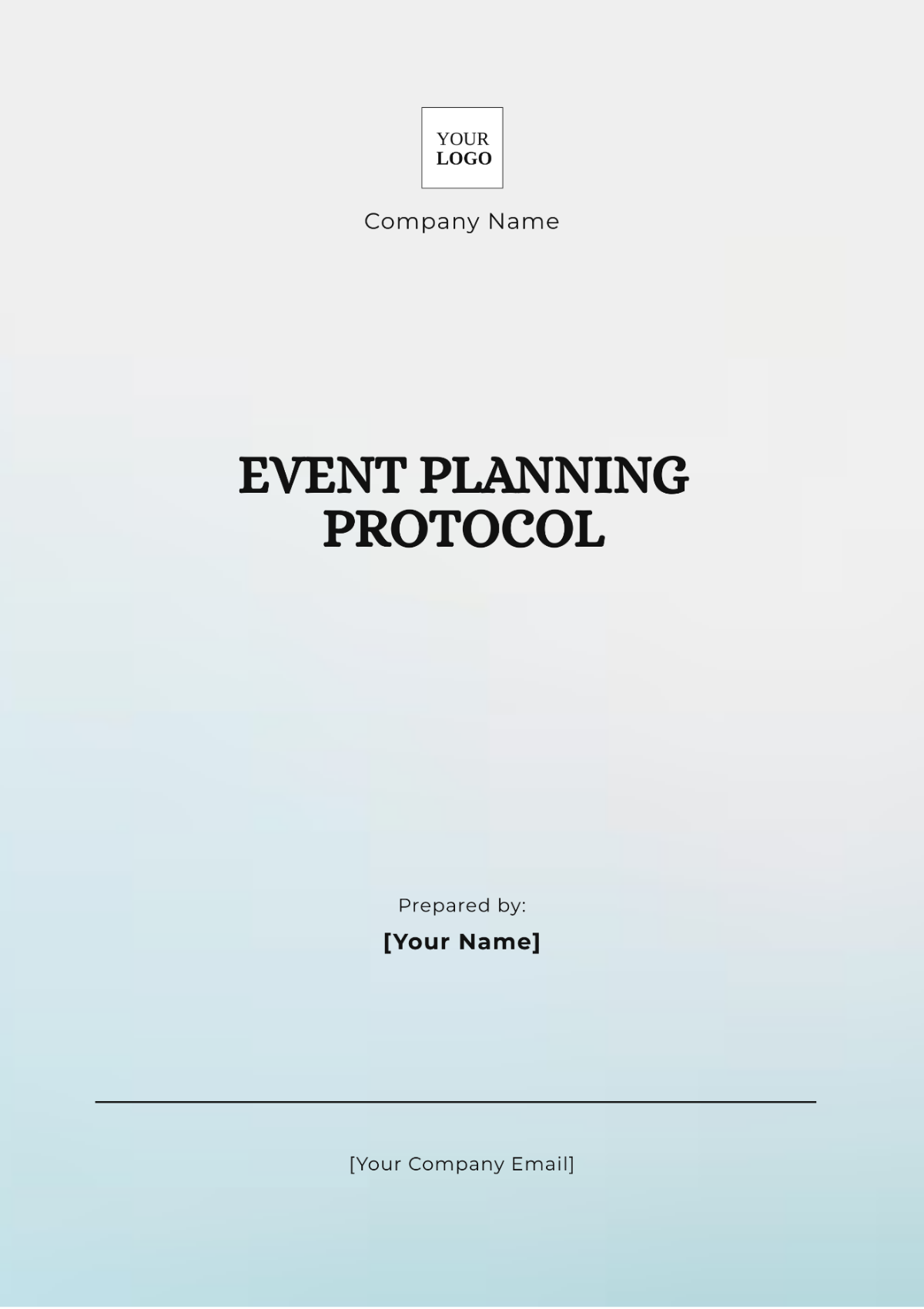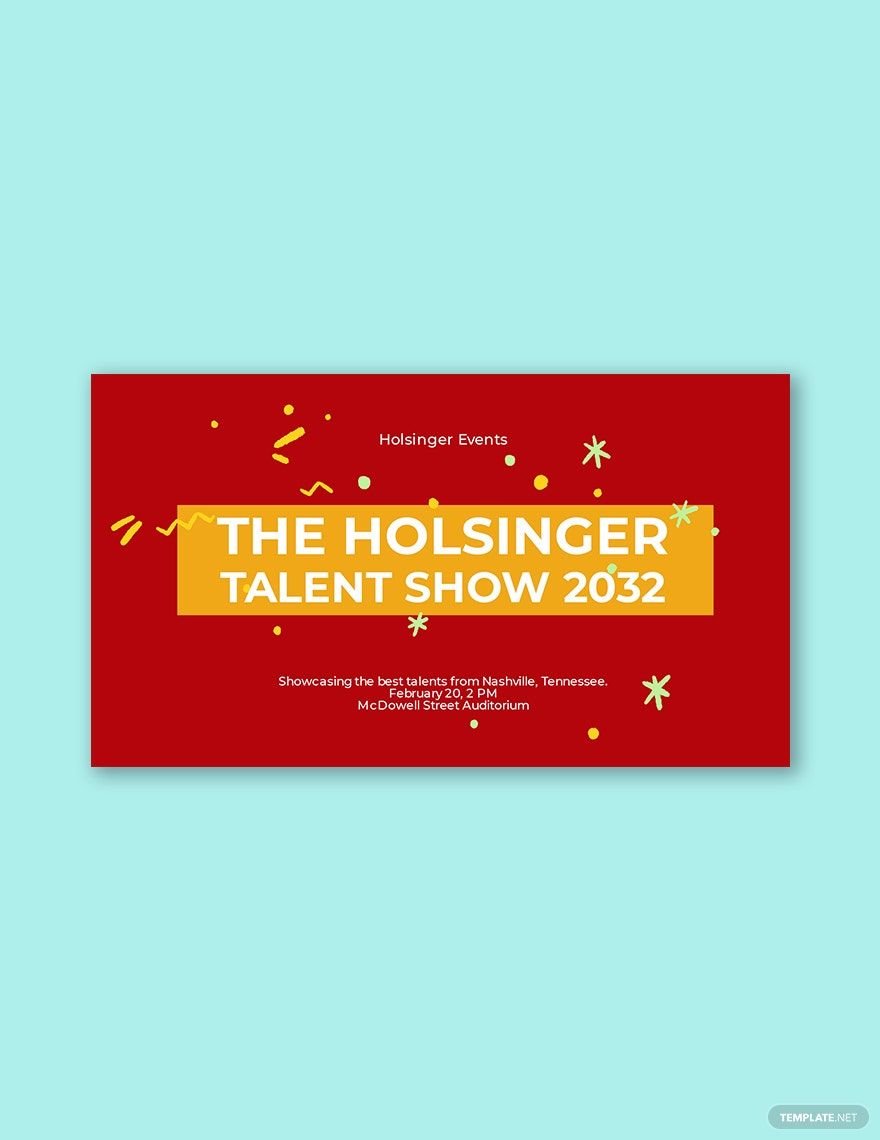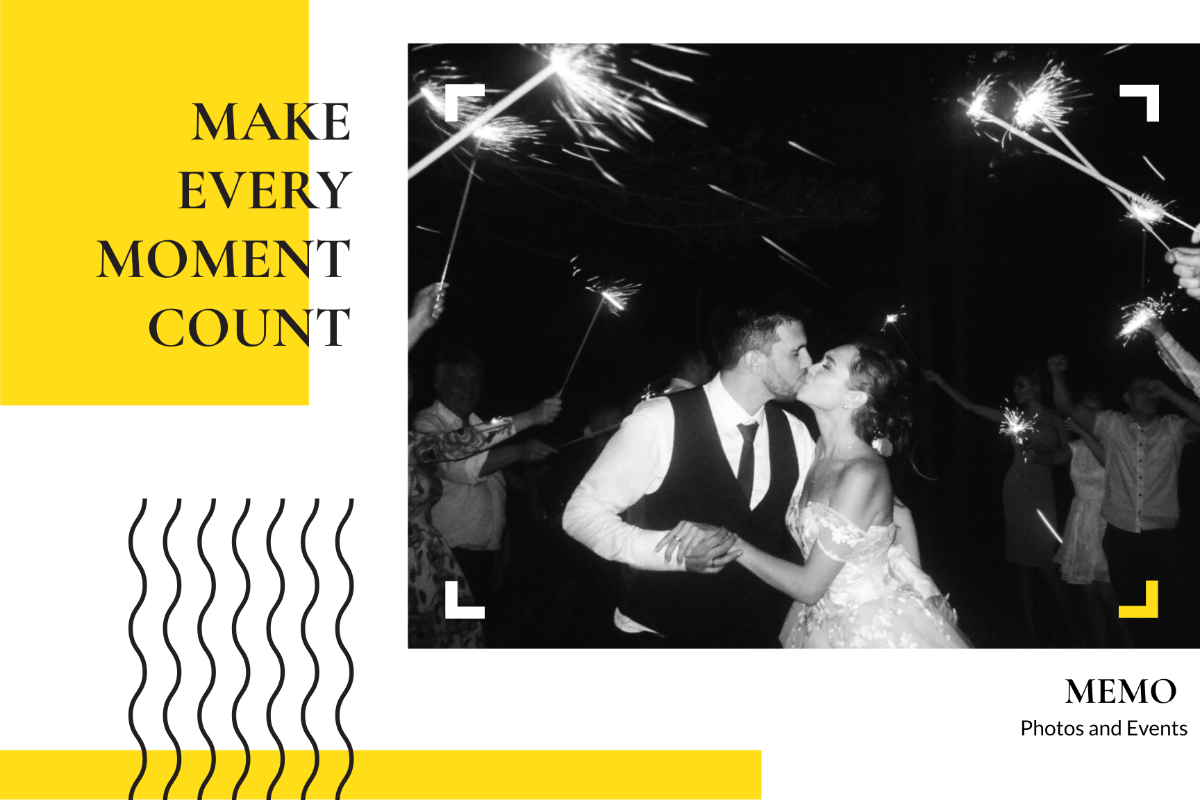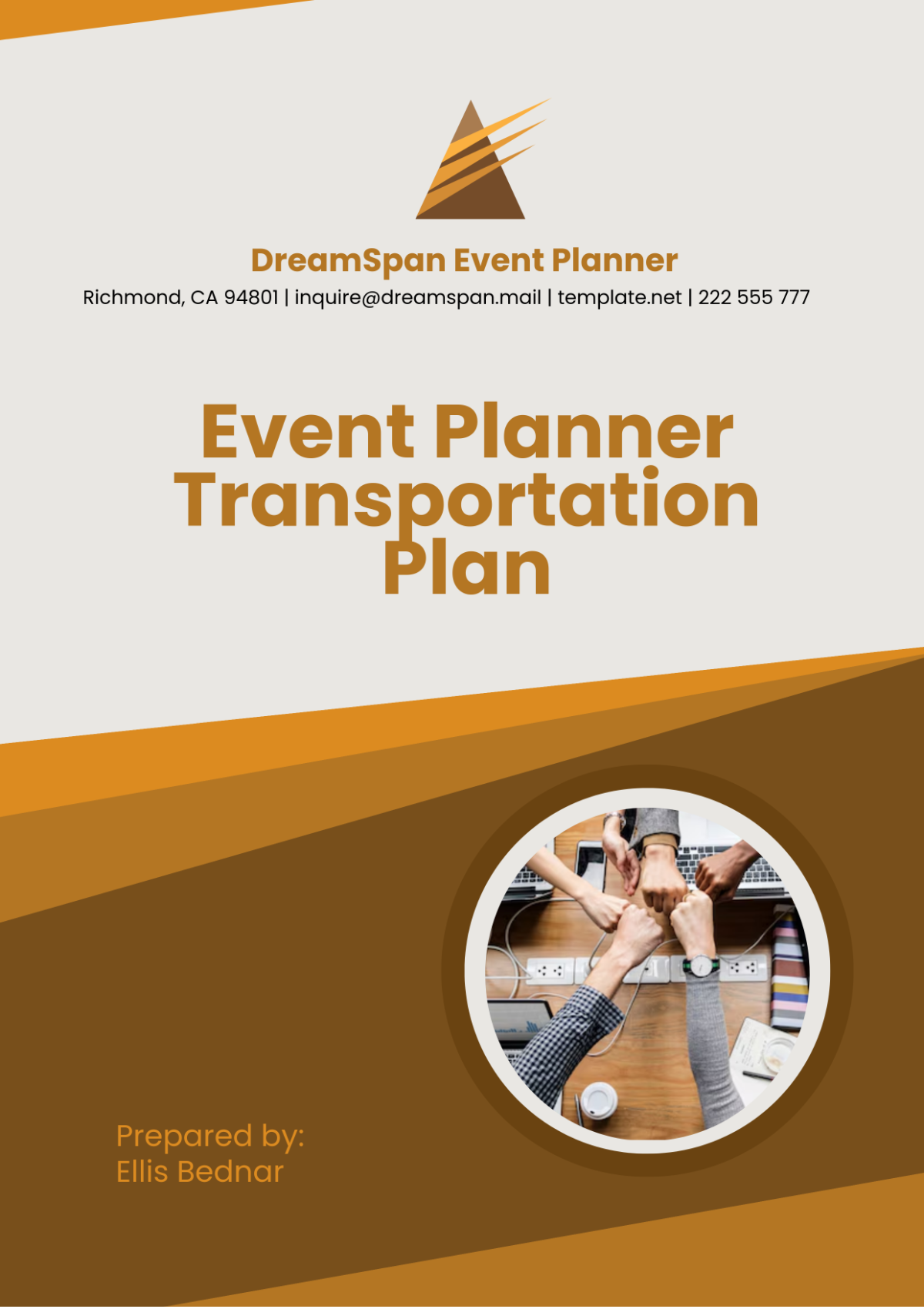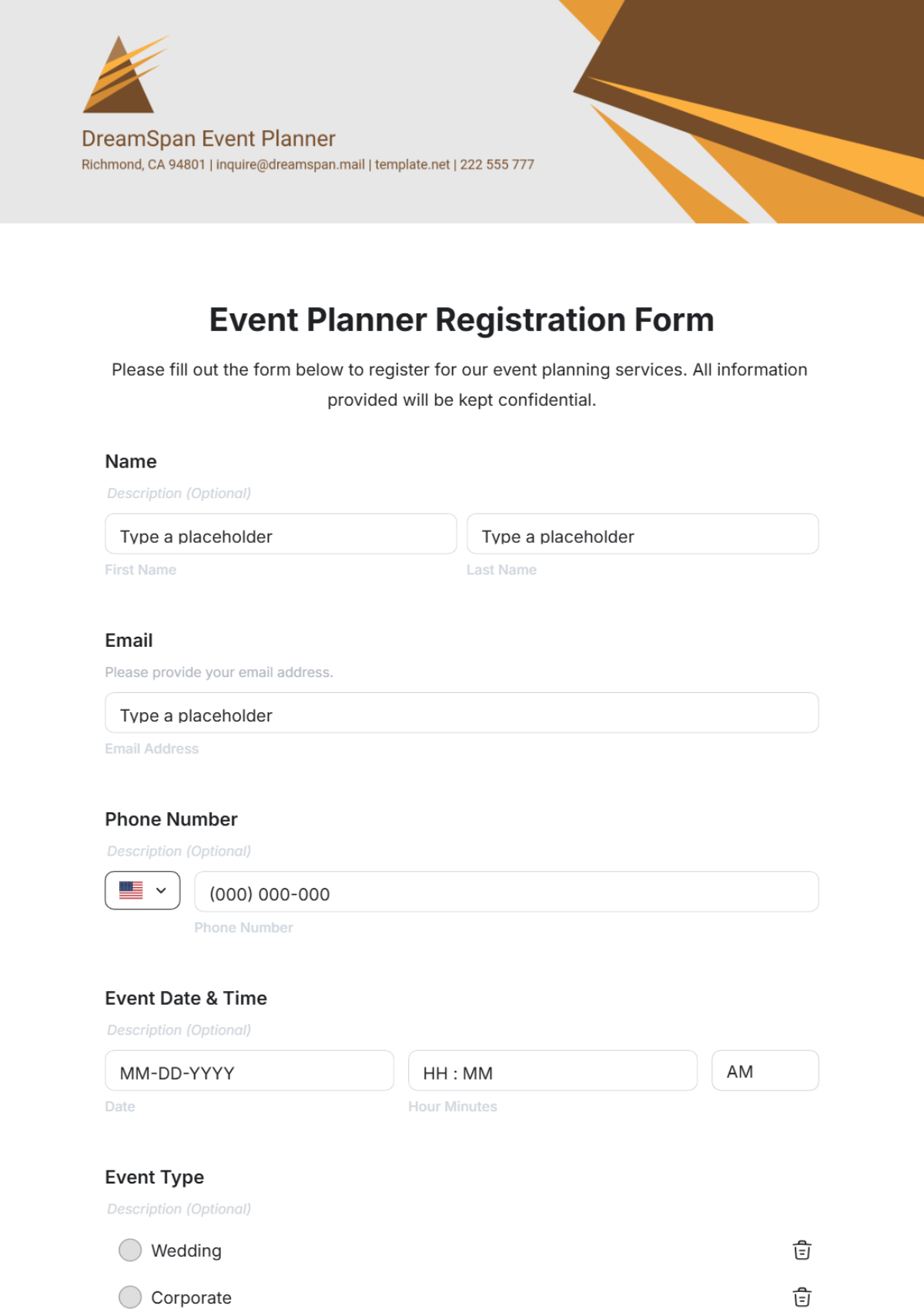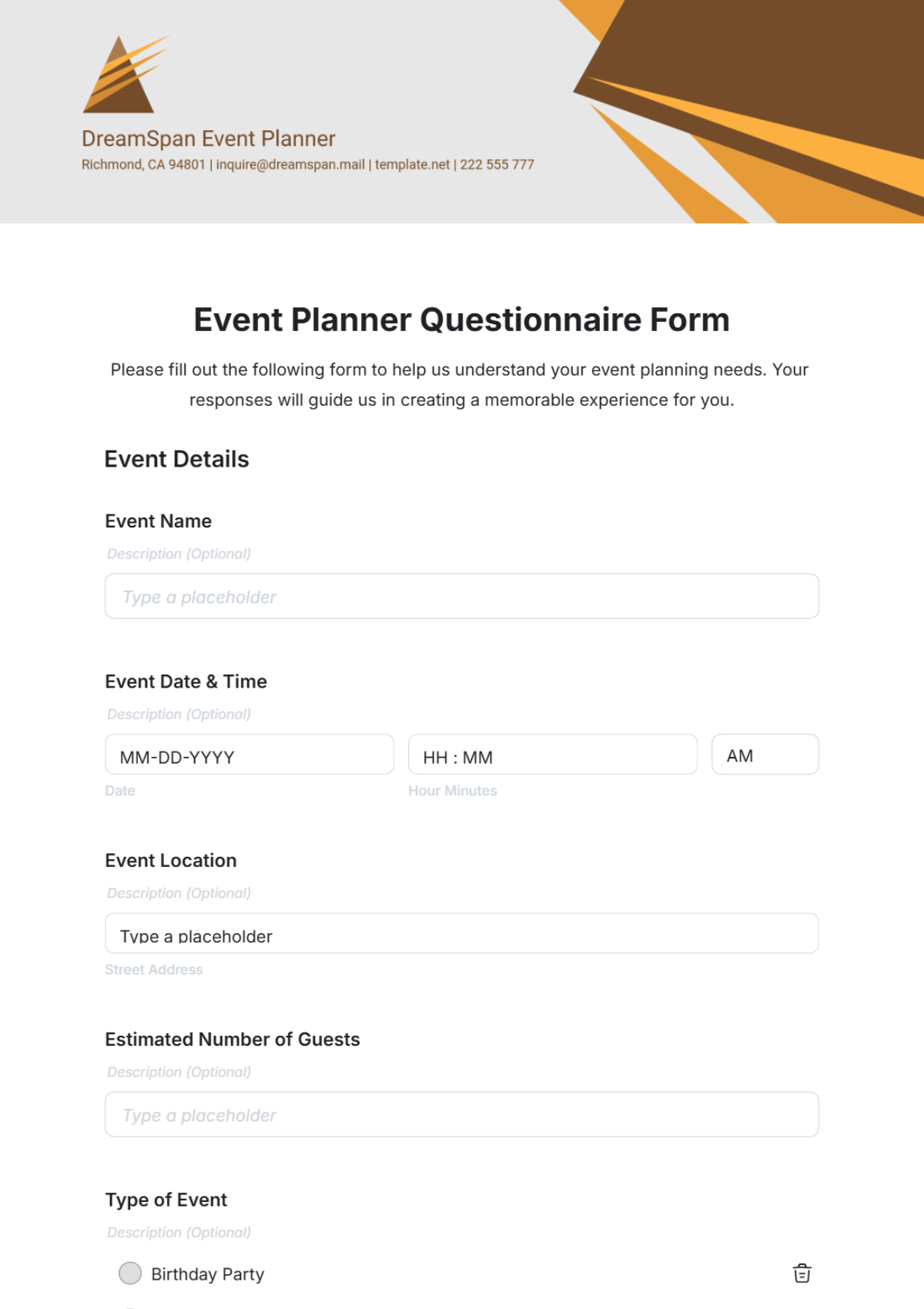EVENT MARKETING CASE STUDY
I. Executive Summary
In this section, provide a brief overview of the event marketing case study, including the event's name, objectives, key stakeholders involved, and a summary of the outcomes achieved. Highlight the main points that will be discussed in detail throughout the case study.
II. Introduction
[Your Company Name] organized a [Type of Event] called [Event Name] on [Event Date] at [Event Location]. The primary goal was to showcase the latest technological advancements. The event targeted industry professionals and technology enthusiasts and aimed to facilitate knowledge exchange and networking opportunities.
III. Methodology
In this section, outline the methodology used to plan, execute, and analyze the event marketing campaign. Include details about the research conducted, strategies implemented, resources utilized, and any partnerships or collaborations involved.
A. Research and Analysis
Conducted market research to understand target audience preferences and trends.
Analyzed competitors' event marketing strategies to identify gaps and opportunities.
B. Strategy Implementation
Developed a comprehensive marketing plan outlining promotional activities, channels, and timelines.
Leveraged digital marketing tactics, including social media campaigns, email marketing, and content creation.
C. Resource Allocation
Allocated budget resources effectively to optimize ROI and achieve desired outcomes.
Collaborated with internal teams and external partners/vendors to ensure seamless execution.
IV. Event Planning and Execution
[Your Company Name] employed a comprehensive approach to plan and execute the [Event Name]. The planning phase involved [Describe Planning Process], including market research, competitor analysis, and defining key performance indicators (KPIs). The execution phase encompassed [Describe Execution Process], such as promotional activities, logistics management, attendee engagement strategies, and on-site operations.
A. Pre-Event Planning
Defined event objectives, target audience, and key messages.
Secured event venue, vendors, and necessary permits/licenses.
B. Promotion and Marketing
Developed marketing collateral, including event websites, flyers, and social media posts.
Implemented targeted advertising campaigns to reach the desired audience segments.
C. On-Site Management
Managed event logistics, including registration, seating arrangements, and technical support.
Ensured a seamless attendee experience through engagement activities, networking opportunities, and speaker sessions.
V. Key Strategies and Tactics
Detail the key strategies and tactics implemented during the event marketing campaign. This may include digital marketing tactics, social media engagement, influencer partnerships, experiential marketing activities, content creation, and any unique approaches used to enhance the event's success.
A. Digital Marketing Strategies
Leveraged social media platforms to create buzz and engage with attendees before, during, and after the event.
Utilized email marketing campaigns to promote event updates, speaker announcements, and special offers.
B. Content Creation and Promotion
Developed compelling content, including blog posts, videos, and infographics, to showcase event highlights and key messages.
Collaborated with influencers and industry experts to amplify event reach and credibility.
VI. Outcomes and Results
Evaluate the outcomes and results of the event marketing campaign based on predefined KPIs and objectives. Include quantitative data, such as attendance numbers, lead generation metrics, social media reach, conversion rates, and qualitative insights gathered from attendee feedback or post-event surveys.
A. Quantitative Results
Achieved a [Percentage]% increase in attendance compared to previous events.
Generated [Number] leads, resulting in [Percentage]% conversion rate.
B. Qualitative Insights
Received positive feedback from [Number] attendees regarding event content and organization.
Identified areas for improvement based on post-event surveys and participant feedback.
VII. Lessons Learned and Recommendations
Reflect on the lessons learned from the event marketing case study and provide actionable recommendations for future event marketing initiatives. Identify strengths, weaknesses, opportunities, and threats (SWOT analysis) to improve future event strategies and maximize ROI.
A. Lessons Learned
Importance of early planning and clear communication with stakeholders.
Need for diversified marketing channels to reach a broader audience base.
B. Recommendations
Implement advanced event analytics tools to track ROI and audience engagement metrics.
Explore partnerships with industry influencers and thought leaders for enhanced event promotion.
VIII. Conclusion
Summarize the key takeaways from the event marketing case study, reiterate the success factors, and emphasize the impact of the event on [Your Company Name]'s overall marketing objectives. Encourage readers to apply the insights gained to their event marketing strategies.
IX. References
Include any references, citations, or sources of data used throughout the case study, such as industry reports, survey results, testimonials, or external studies that support your analysis and findings.
Prepared By:
[Your Name]
[YOUR POSITION]
[YOUR DEPARTMENT]
Contact Details:
[Your Email]
[Your Company Number]
[Your Company Website]
[Your Company Address]


